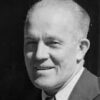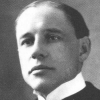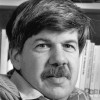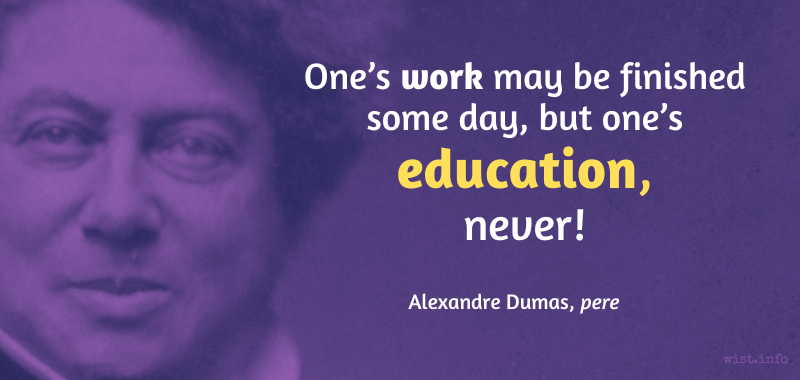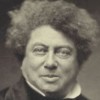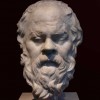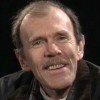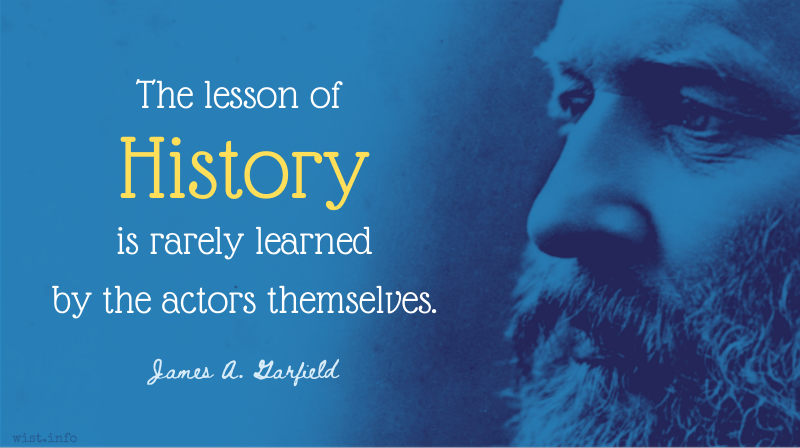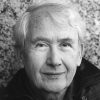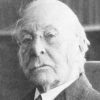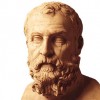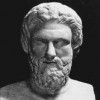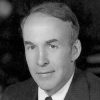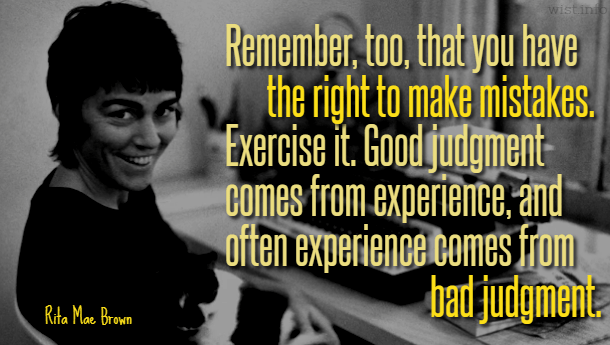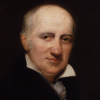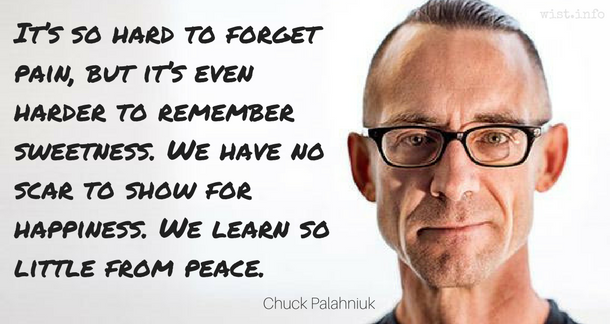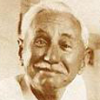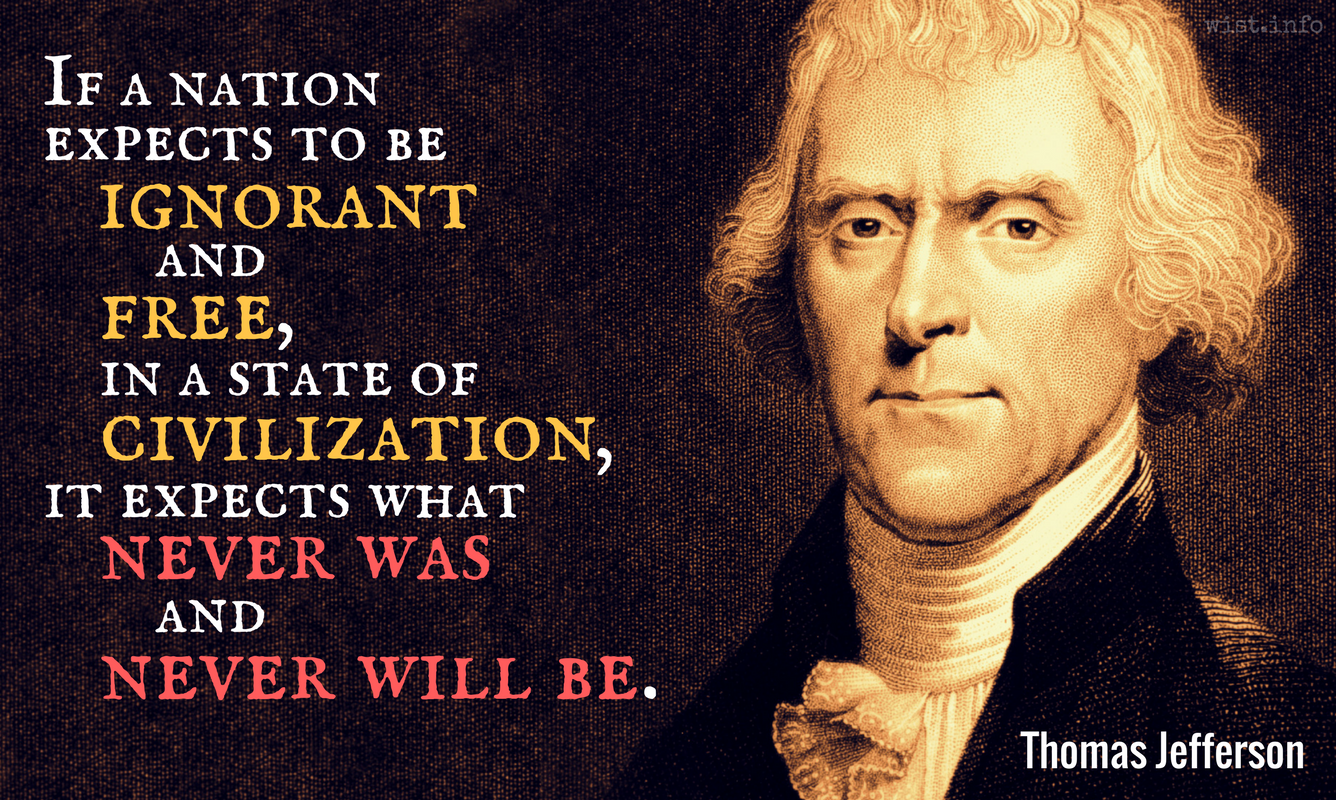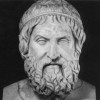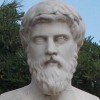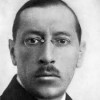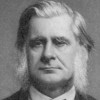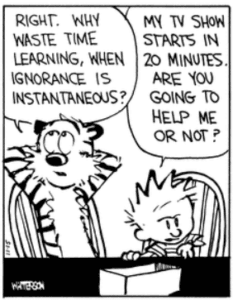In teaching thy Child, rather dally with him, than terrify him: for no Art or Science entereth kindly into the Mind, that is driven in forcibly.
Thomas Fuller (1654-1734) English physician, preacher, aphorist, writer
Introductio ad Prudentiam, Vol. 1, # 1181 (1725)
(Source)
Quotations about:
learning
Note not all quotations have been tagged, so Search may find additional quotes on this topic.
In teaching thy Child, rather dally with him, than terrify him: for no Art or Science entereth kindly into the Mind, that is driven in forcibly.
Ralph Waldo Emerson (1803-1882) American essayist, lecturer, poet
Introductio ad Prudentiam, Vol. 1, # 1181 (1725)
(Source)
Knowledge is, indeed, that which, next to virtue, truly and essentially raises one man above another. It finishes one half of the human Soul. It makes Being pleasant to us, fills the mind with entertaining views, and administers to it a perpetual series of gratifications. It gives ease to solitude and gracefulness to retirement. It fills a publick station with suitable abilities, and adds a lustre to those who are in possession of them.
Joseph Addison (1672-1719) English essayist, poet, statesman
Essay (1713-07-18), The Guardian, No. 111
(Source)
Don’t say “When I have time I will learn,” lest you never have time.
[וְאַל תֹּאמַר לִכְשֶׁאִפָּנֶה אֶשְׁנֶה, שֶׁמָּא לֹא תִפָּנֶה:]
Hillel (1st C. BC-1st C. AD) Jewish sage, rabbi [הלל]
Mishna, Seder Nezikin [Order of Damages], Pirkei Avot [Chapters of the Fathers] 2:4
(Source)
(Source (Hebrew)). Alternate translations:Say not, When I have leisure I will study; perchance thou mayest not have leisure.
[tr. Taylor (1897)]Say not: ‘when I shall have leisure I shall study;’ perhaps you will not have leisure.
[tr. Gorfinkle (1913)]Say not: ‘when I shall have leisure I shall study;’ perhaps you will not have leisure.
[tr. Kulp]Do not say: When I can free myself [of my affairs] I shall learn (Torah); perhaps you will not free yourself.
[tr. Shraga Silverstein]Do not say, "When I will be available I will study [Torah]," lest you never become available.
[Open Mishnah]Do not say "When I have leisure, I will study," perhaps you will not have leisure.
[Source]Say not, "When I have free time I shall study"; for you may perhaps never have any free time.
A fresh hope is astir. From many quarters comes the call to a new kind of education with its initial assumption affirming that education is life — not a mere preparation for an unknown kind of future living. Consequently all static concepts of education which relegate the learning process to the period of youth are abandoned. The whole of life is learning, therefore education can have no endings,
Eduard C. Lindeman (1885-1953) American educator
The Meaning of Adult Education, ch. 1 (1926)
(Source)
Poverty must not be a bar to learning, and learning must offer an escape from poverty.
Lyndon B. Johnson (1908-1973) American politician, educator, US President (1963-69)
Speech (1964-05-22), Graduation, University of Michigan, Ann Arbor
(Source)
§ 94. But why should every individual not have been present more than once in this world?
§ 95. Is this hypothesis so ridiculous just because it is the oldest one? Because the human understanding hit up on it at once, before it was distracted and weakened by the sophistry of the schools?
§ 98. Why should I not come back as often as I am able to acquire new knowledge and new accomplishments? Do I take away so much on one occasion that it may not be worth the trouble coming back?
§ 100. Or am I not to return because too much time would be lost in so doing? — Lost? — And what exactly do I have to lose? Is not the whole of eternity mine?[§ 94. Aber warum könnte jeder einzelne Mensch auch nicht mehr als einmal auf dieser Welt vorhanden gewesen seyn?
§ 95. Ist diese Hypothese darum so lächerlich, weil sie die älteste ist? weil der menschliche Verstand, ehe ihn die Sophisterey der Schule zerstreut und geschwächt hatte, sogleich darauf verfiel?
§ 98. Warum sollte ich nicht so oft wiederkommen, als ich neue Kenntnisse, neue Fertigkeiten zu erlangen geschickt bin? Bringe ich auf Einmal so viel weg, daß es der Mühe wieder zu kommen etwa nicht lohnet?
§ 100. Oder, weil so zu viel Zeit für mich verloren gehen würde?—Verloren? —Und was habe ich denn zu versäumen? Ist nicht die ganze Ewigkeit mein?]Gotthold Lessing (1729-1781) German playwright, philosopher, dramaturg, writer
The Education of the Human Race [Die Erziehung des Menschengeschlechts] (1780)
(Source)
(Source (German)). Alternate translations:§ 94. But why should not every individual man have existed more than once upon this World?
§ 95. Is this hypothesis so laughable merely because it is the oldest? Because the human understanding, before the sophistries of the Schools had dissipated and debilitated it, lighted upon it at once?
§ 98. Why should I not come back as often as I am capable of acquiring fresh knowledge, fresh expertness? Do I bring away so much from once, that there is nothing to repay the trouble of coming back?
§ 100. Or is it a reason against the hypothesis that so much time would have been lost to me? Lost? -- And how much then should I miss? -- Is not a whole Eternity mine?
[tr. Robertson (1862)]§ 94. But why could not each individual man Have been existent on this earth more than once?
§ 95. Is this hypothesis therefore so absurd because it is the oldest, because the human understanding, ere enfeebled and scattered by sophistry, immediately hit upon it?
§ 98. Why may I not return as often as I am fit to acquire new knowledge, new skill? Do I bring away so much at once that there is not wherewith to recompense the burden of return?
§ 100. Or is it because too much time would thus for me be lost? Lost? And what have I to lose? Is not mine a whole eternity?
[tr. Haney (1908)]
The object of education for that mind should be the teaching itself how to react with vigor and economy. No doubt the world at large will always lag so far behind the active mind as to make a soft cushion of inertia to drop upon, as it did for Henry Adams; but education should try to lessen the obstacles, diminish the friction, invigorate the energy, and should train minds to react, not at haphazard, but by choice, on the lines of force that attract their world. What one knows is, in youth, of little moment; they know enough who know how to learn.
Henry Adams (1838-1918) American journalist, historian, academic, novelist
The Education of Henry Adams, ch. 21 (1907)
(Source)
Education is that which remains, if one has forgotten everything else he learned in school.
Albert Einstein (1879-1955) German-American physicist
(Misattributed)
(Source)
Einstein cites this (as he agrees with it) as coming from a "wit" in a speech (1936-10-15), Convocation of University of New York, Albany [tr. Arronet]. Collected in "On Education" (1936), Out of My Later Years, ch. 9 (1950).
Pedantry crams our heads with learned lumber, and takes out our brains to make room for it.
Charles Caleb "C. C." Colton (1780-1832) English cleric, writer, aphorist
Lacon: Or, Many Things in Few Words, Vol. 2, § 20 (1822)
(Source)
The central task of education is to implant a will and facility for learning; it should produce not learned but learning people. The truly human society is a learning society, where grandparents, parents, and children are students together.
Eric Hoffer (1902-1983) American writer, philosopher, longshoreman
Reflections on the Human Condition, ch. 1, # 32 (1973)
(Source)
Elitism is repulsive when based upon external and artificial limitations like race, gender, or social class. Repulsive and utterly false — for that spark of genius is randomly distributed across all cruel barriers of our social prejudice. We therefore must grant access — and encouragement — to everyone; and must be increasingly vigilant, and tirelessly attentive, in providing such opportunities to all children. We will have no justice until this kind of equality can be attained. But if only a small minority respond, and these are our best and brightest of all races, classes, and genders, shall we deny them the pinnacle of their soul’s striving because all their colleagues prefer passivity and flashing lights? Let them lift their eyes to hills of books, and at least a few museums that display the full magic of nature’s variety. What is wrong with this truly democratic form of elitism?
Stephen Jay Gould (1941-2002) American paleontologist, geologist, biologist
Dinosaur in a Haystack: Reflections in Natural History, Part 5, ch. 18 “Cabinet Museums: Alive, Alive, O!” (1995)
(Source)
Only if a child feels right can he think right.
Haim Ginott (1922-1973) Israeli-American school teacher, child psychologist, psychotherapist [b. Haim Ginzburg]
Teacher and Child, ch. 4 “Congruent Communication” (1972)
(Source)
Writing, printing, and the Internet give a false sense of security about the permanence of culture. Most of the million details of a complex, living culture are transmitted neither in writing nor pictorially. Instead, cultures live through word of mouth and example. That is why we have cooking classes and cooking demonstrations, as well as cookbooks. That is why we have apprenticeships, internships, student tours, and on-the-job training as well as manuals and textbooks. Every culture takes pains to educate its young so that they, in their turn, can practice and transmit it completely. Educators and mentors, whether they are parents, elders, or schoolmasters, use books and videos if they have them, but they also speak, and when they are most effective, as teachers, parents, or mentors, they also serve as examples.
Jane Jacobs (1916-2006) American-Canadian journalist, author, urban theorist, activist
Dark Age Ahead, ch. 1 “The Hazard” (2004)
(Source)
Just as eating contrary to the inclination is injurious to the health, study without desire spoils the memory, and it retains nothing that it takes in.
Leonardo da Vinci (1452-1519) Italian artist, engineer, scientist, polymath
MS. 2038, Bib. Nat. 34 r. [tr. McCurdy (1908)]
(Source)
Children learn what they experience. They are like wet cement. Any word that falls on them makes an impact.
Haim Ginott (1922-1973) Israeli-American school teacher, child psychologist, psychotherapist [b. Haim Ginzburg]
Between Parent and Child: Revised and Updated Edition, ch. 10 “Summing Up” (2003 ed.) [with A. Ginott and H. W. Goddard]
(Source)
Frequently paraphrased (e.g.) as "Children are like wet cement. Whatever falls on them makes an impression."
This is usually cited as being from the original 1965 edition of the book, but cannot be found there. Instead, it appears to be from the 2003 edition, as revised and updated by his wife, Dr Alice Ginott, and Dr H Wallace Goddard. It is unclear if Haim Ginott may have used this phrase in other contexts.
Why is it that we remember with effort but forget without effort? That we learn with effort but stay ignorant without effort? That we are active with effort, and lazy without effort?
[Quid est enim, quod cum labore meminimus, sine labore obliuiscimur; cum labore discimus, sine labore nescimus; cum labore strenui, sine labore inertes sumus?]Augustine of Hippo (354-430) Christian church father, philosopher, saint [b. Aurelius Augustinus]
City of God [De Civitate Dei], Book 22, ch. 22 (22.22) (AD 412-416) [tr. Green (Loeb) (1972)]
(Source)
(Source (Latin)). Alternate translations:What is our labour to remember things, our labour to learn, and our ignorance without this labour? our agility got by toil, and our dullness if we neglect it?
[tr. Healey (1610)]For why is it that we remember with difficulty, and without difficulty forget? learn with difficulty, and without difficulty remain ignorant? are diligent with difficulty, and without difficulty are indolent?
[tr. Dods (1871)]How difficult it is to remember, how easy to forget; how hard to learn and how easy to be ignorant; how difficult to make an effort and how easy to be lazy.
[tr. Walsh/Honan (1954)]How is it that what we learn with toil we forget with ease? that it is hard to learn, but easy to be in ignorance? That activity goes against the grain, while indolence is second nature?
[tr. Bettenson (1972)]Why is it that we remember with such difficulty, but forget so easily? Why is it that we learn with such difficulty, yet so easily remain ignorant? Why is it that we are vigorous with such difficulty, yet so easily inert?
[tr. Dyson (1998)]
Shall I tell you the secret of the true scholar? It is this: Every man I meet is my master in some point, and in that I learn of him.
Ralph Waldo Emerson (1803-1882) American essayist, lecturer, poet
“Greatness,” Letters and Social Aims (1876)
(Source)
This appears to be the origin of the much more common paraphrase (not found in Emerson's works, but popularized by Dale Carnegie in How to Win Friends and Influence People (1936)): "In my walks, every man I meet is my superior in some way, and in that, I learn from him."
Thou art an heyre to fayre lyving, that is nothing, if thou be disherited of learning, for better were it to thee to inherite righteousnesse then riches, and far more seemely were it for thee to have thy Studie full of bookes, then thy pursse full of mony: to get goods is the benefit of Fortune, to keepe them the gift of Wisedome.
[Thou art an heir to fair living; that is nothing if thou be disinherited of learning, for better were it to thee to inherit righteousness than riches and far more seemly were it for thee to have thy study full of books than thy purse full of money. To get goods is the benefit of fortune, to keep them the gift of wisdom. (1916 ed.)]John Lyly (c. 1553-1606) was an English writer [also Lilly or Lylie]
Euphues: The Anatomy of Wit, “Letter to Alcius” (1579)
(Source)
Whence had you this illustrious name?
From virtue and unblemish’d fame.
By birth the name alone descends;
Your honour on yourself depends:
Think not your coronet can hide
Assuming ignorance and pride.
Learning by study must be won,
‘Twas ne’er entail’d from son to son.John Gay (1685-1732) English poet and playwright
“The Pack-Horse and Carrier (To a young Nobleman),” ll. 41-42
(Source)
Some printings of the poem leave off the prologue, of which this is a part.
Learning without thought ends in a blur. Thought without learning will soon totter.
[學而不思則罔、思而不學則殆。]Confucius (c. 551- c. 479 BC) Chinese philosopher, sage, politician [孔夫子 (Kǒng Fūzǐ, K'ung Fu-tzu, K'ung Fu Tse), 孔子 (Kǒngzǐ, Chungni), 孔丘 (Kǒng Qiū, K'ung Ch'iu)]
The Analects [論語, 论语, Lúnyǔ], Book 2, verse 15 (2.15) (6th C. BC – AD 3rd C.) [tr. Ware (1950)]
(Source)
Many (but not all) translators suggest that learning/study here is not general academics, but examining and maintaining the ancient traditions.
(Source (Chinese)). Alternate translations:Learning without thought is labour lost; thought without learning is perilous.
[tr. Legge (1861)]Learning with [sic] thought is a snare; thought without learning is a danger.
[tr. Jennings (1895)]Study without thinking is labour lost. Thinking without study is perilous.
[tr. Ku Hung-Ming (1898)]Learning without thought is useless. Thought without learning is dangerous.
[tr. Soothill (1910)]Education without meditation is useless. Meditation without education is risky.
[tr. Soothill (1910), alternate]Research without thought is a mere net and entanglement: thought without gathering data, a peril.
[tr. Pound (1933)]He who learns but does not think, is lost. He who thinks but does not learn is in great danger.
[tr. Waley (1938)]If one learns from others but does not think, one will be bewildered. If, on the other hand, one thinks but does not learn from others, one will be in peril.
[tr. Lau (1979)]If one studies but does not think, one is caught in a trap. If one thinks but does not study, one is in peril.
[tr. Dawson (1993)]To study without thinking is futile. To think without studying is dangerous.
[tr. Leys (1997)]Learning without thinking is fruitless; thinking without learning is perplexing.
[tr. Huang (1997); additional translations.]Studying but not thinking, it is confused; Thinking but not studying, it is dangerous.
[tr. Cai/Yu (1998)]Learning without due reflection leads to perplexity; reflection without learning leads to perilous circumstances.
[tr. Ames/Rosemont (1998)]If he studies and does not reflect, he will be rigid. If he reflects but does not study, he will be shaky.
[tr. Brooks/Brooks (1998)]To learn and never think -- that's delusion. But to think and never learn -- that is perilous indeed!
[tr. Hinton (1998)]If you learn without thinking about what you have learned, you will be lost. If you think without learning, however, you will fall into danger.
[tr. Slingerland (2003)]Learning without thought is pointless. Thought without learning is dangerous.
[tr. Watson (2007)]If you learn but do not think, you will be dazed. If you think but do not learn, you will be in danger.
[tr. Chin (2014)]Learning from books without critical thinking results in confusion. Thinking vacuously without learning from books is perilous.
[tr. Li (2020)]
Take then good note of it. Nothing is too small. I counsel you, put down in record even your doubts and surmises. Hereafter it may be of interest to you to see how true you guess. We learn from failure, not from success!
Abraham "Bram" Stoker (1847-1912) Irish author, theater manager, journalist
Dracula, ch. 10, Dr. Seward’s Diary, 7 September [Abraham Van Helsing] (1897)
(Source)
Truth that has been merely learned is like an artificial limb, a false tooth, a waxen nose; at best, like a nose made out of another’s flesh; it adheres to us only because it is put on. But truth acquired by thinking of our own is like a natural limb; it alone really belongs to us. This is the fundamental difference between the thinker and the mere man of learning.
[Hingegen klebt die bloß erlernte Wahrheit uns nur an, wie ein angeseßtes Glied, ein falscher Zahn, eine wächserne Nase, oder höchstens wie eine rhinoplastische aus fremdem Fleische. Die durch eigenes Denken erworbene Wahrheit aber gleicht dem natürlichen Gliede: fie allein gehört uns wirklich an. Darauf beruht der Unterschied zwischen dem Denker und dem bloßen Gelehrten.]Arthur Schopenhauer (1788-1860) German philosopher
Parerga and Paralipomena, Vol. 2, ch. 22 “On Thinking for Oneself [Selbstdenken],” § 260 (1851) [tr. Saunders (1890)]
(Source)
Source (German). Alternate translations:Truth that has been merely learned adheres to us like an artificial limb, a false tooth, a waxen nose, or at best like one made out of another's flesh; truth which is acquired by thinking for oneself is like a natural member: it alone really belongs to us. Here we touch upon the difference between the thinking man and the mere man of learning.
[tr. Dircks (1897)]Truth that has merely been learnt adheres to us only as an artificial limb, a false tooth, a was nose does, or at most like transplanted skin; but a truth won by thinking for ourself is like a natural limb: it alone really belongs to us. This is what determines the difference between a thinker and a mere scholar.
[tr. Hollingdale (1970)]... other hand, the truth acquired through our own thinking is like the natural limb; it alone really belongs to us. On this rests the distinction between the thinker and the mere scholar.
[tr. Payne (1974)]
Real education precisely consists in the fact that we see beyond the symbols and the mere machinery of the age in which we find ourselves: education precisely consists in the realization of a permanent simplicity that abides behind all civilizations, the life that is more than meat, the body that is more than raiment. The only object of education is to make us ignore mere schemes of education. Without education, we are in a horrible and deadly danger of taking educated people seriously.
Gilbert Keith Chesterton (1874-1936) English journalist and writer
“Our Note Book,” The Illustrated London News (1905-12-02)
(Source)
A successful man is simply one who doesn’t make a fool of himself in the same way more than two or three times running.
H. L. Mencken (1880-1956) American writer and journalist [Henry Lewis Mencken]
A Little Book in C Major, ch. 3, § 5 (1916)
(Source)
I don’t think there is anything I have done that I wish I hadn’t done. Because I learn from everything I do. I’m in school every day. My diploma will be my tombstone.
Eartha Kitt (1927-2008) American singer and actress
In Lon Tuck, “It’s Been a Long Time But … Eartha’s Back!” Washington Post (1978-01-19)
(Source)
When a citation is given to this quotation, it's usually "Playbill 1978." It does indeed show up in an (unknown month) of Playbill Magazine in 1978, also in association with her starring role in the stage show Timbuktu, which opened on Broadway March 1st of that year, but this article appears to be the source. (see comments for the helpful tip).
One’s work may be finished some day, but one’s education, never!
[L’oeuvre est terminée un jour; l’éducation jamais!]
Alexandre Dumas, père (1802-1870) French novelist and dramatist
My Memoirs [Mes Mémoires], ch. 113 (1852-1856) [tr. Waller (1907); 1826-1830: Vol. 3, Book 2, ch. 10]
(Source)
I am still learning.
[Ancora imparo.]
Michelangelo (1475-1564) Italian artist, architect, poet [Michelangelo di Lodovico Buonarroti Simoni]
(Attributed)
Also rendered Anchora imparo. This is often described as a daily mantra of Michelangelo's. This association can be traced to Richard Duppa, The Lives and Works of Michael Angelo and Raphael (1806) [tr. Hazlitt]. Duppa misattributed to Michelangelo a drawing by Domenico Giuntalodi, which included the saying. The phrase itself was popular during the 16th Century.
While there's no indication that Michelangelo did not say this, or agree with the sentiment, it does not seem to have been solidly cited to him, or shown to be a personal motto, let alone being original to him.
More discussion: Michelangelo - Wikiquote.
What had men thought? What had men believed? How did they come by those thoughts and beliefs? How had men learned to govern themselves? Were the processes the same everywhere?
Did man build cities because of an inner drive, like that of a beaver to build dams? How much of what we do is free will, and how much is programmed in our genes? Why is each people so narrow that it believes that it, and it alone, has all the answers? In religion, is there but one road to salvation? Or are there many, all equally good, all going in the same general direction?
I have read my books by many lights, hoarding their beauty, their wit or wisdom against the dark days when I would have no book, nor a place to read.
I have known hunger of the belly kind many times over, but I have known a worse hunger: the need to know and to learn.
Louis L'Amour (1908-1988) American writer
Education of a Wandering Man: A Memoir, ch. 11 (1989)
(Source)
Nothing reveals more clearly men’s attitude to learning and literature, and what use they think these are to the State, than the low price they put on them, and their opinion of those who have chosen to practice them.
[Rien ne découvre mieux dans quelle disposition sont les hommes à l’égard des sciences et des belles-lettres, et de quelle utilité ils les croient dans la république, que le prix qu’ils y ont mis, et l’idée qu’ils se forment de ceux qui ont pris le parti de les cultiver.]
Jean de La Bruyère (1645-1696) French essayist, moralist
The Characters [Les Caractères], ch. 12 “Of Opinions [Des Jugements],” § 17 (12.17) (1688) [tr. Stewart (1970)]
(Source)
(Source (French)). Alternate translations:Nothing discovers better what disposition men have to Knowledge and Learning, and how profitable they are esteem'd to the Publick, than the price which is set on them, and the Idea they have formed of those who have taken the pains to improve them.
[Bullord ed. (1696)]Nothing discovers better what regard Men have to Science and polite Learning, and how profitable they esteem them to the Publick, than the price they set on them, and the Idea they form to themselves of those who have taken the pains to cultivate them.
[Curll ed. (1713)]Nothing better manifests the Regard paid to the Sciences and Literature, and Men's Sense of their Utility to the Public, than the Recompences assigned to them, and the Repute in which they stand who excel in them.
[Browne ed. (1752)]Nothing better demonstrates how men regard science and literature, and of what use they are considered in the State, than the recompense assigned to them, and the idea generally entertained of those persons who resolve to cultivate them.
[tr. Van Laun (1885)]
The day you stop learning is the day you begin decaying, and then you are no longer a human being.
Isaac Asimov (1920-1992) Russian-American author, polymath, biochemist
Commencement speech, Connecticut College (1975-05-25)
(Source)
Quoted in Peter Smith, ed., Onward! 25 Years of Advice, Exhortation, and Inspiration from America's Best Commencement Speeches (2000).
Every failure teaches a man something. For example, that he will probably fail again next time.
H. L. Mencken (1880-1956) American writer and journalist [Henry Lewis Mencken]
A Little Book in C Major, ch. 2, § 24 (1916)
(Source)
Variants:EXPERIENCE. A series of failures. Every failure teaches a man something, to wit, that he will probably fail again next time.
A Book of Burlesques, "The Jazz Webster" (1924)Every failure teaches a man something, to wit, that he will probably fail again next time.
Chrestomathy, ch. 30 "Sententiae" (1949)
With just enough of learning to misquote.
George Gordon, Lord Byron (1788-1824) English poet
“English Bards and Scotch Reviewers,” l. 66ff (1809)
(Source)
A real education takes place, not in the lecture hall or library, but in the rooms of friends, with earnest frolic and happy disputation. Wine can be a wiser teacher than ink, and banter is often better than books. That was my theory at least, and I was living by it.
Stephen Fry (b. 1957) British actor, writer, comedian
The Fry Chronicles: An Autobiography, Part 1 “College to Colleague” (2012)
(Source)
Let the writer take up surgery or bricklaying if he is interested in technique. There is no mechanical way to get the writing done, no shortcut. The young writer would be a fool to follow a theory. Teach yourself by your own mistakes; people learn only by error.
William Faulkner (1897-1962) American novelist
“The Art of Fiction,” Interview by Jean Stein, Paris Review #12 (Spring 1956)
(Source)
Adept Kung said: “I do nothing to others that I wouldn’t want done to me.”
“That’s something you haven’t quite mastered, Kung,” the Master replied.
[子貢曰、我不欲人之加諸我也、吾亦欲無加諸人。
子曰、賜也、非爾所及也。]Confucius (c. 551- c. 479 BC) Chinese philosopher, sage, politician [孔夫子 (Kǒng Fūzǐ, K'ung Fu-tzu, K'ung Fu Tse), 孔子 (Kǒngzǐ, Chungni), 孔丘 (Kǒng Qiū, K'ung Ch'iu)]
The Analects [論語, 论语, Lúnyǔ], Book 5, verse 12 (5.12) (6th C. BC – AD 3rd C.) [tr. Hinton (1998)]
(Source)
The earliest appearance of the "Golden Rule" in world literature. See also 12.2, 15.24, and Matthew 7:12.
Originally numbered 5.11 by Legge and other early sources, as noted.
(Source (Chinese)). Alternate translations:Tsze-kung said, "What I do not wish men to do to me, I also wish not to do to men."
The Master said, "Ts'ze, you have not attained to that."
[tr. Legge (1861), 5.11]Tsz-kung made the remark: ‘That which I do not wish others to put upon me, I also wish not to put upon others.’
‘Nay,’ said the Master, 'you have not got so far as that.’
[tr. Jennings (1895), 5.11]A disciple said to Confucius, "What I do not wish that others should not do unto me, I also do not wish that I should do unto them."
"My friend," answered Confucius, "You have not yet attained to that."
[tr. Ku Hung-Ming (1898), 5.11]Tzŭ Kung said, "What I do not wish others to do to me, that also I wish not to do to them."
"Tzŭ!" observed the Master, "that is a point to which you have not attained."
[tr. Soothill (1910), 5.11]Tze-Kung said: What I don't want done to me, 1 don’t want to do to anyone else.
Confucius said: No, Ts'ze. you haven't got that far yet.
[tr. Pound (1933), 5.11]Tzu-kung said, What I do not want others to do to me, I have no desire to do to others.
The Master said, Oh Ssu! You have not quite got to that point yet.
[tr. Waley (1938), 5.11]Tuan-mu Tz'u said, "What I do not wish others to do unto me I also wish not to do unto others."
"You're not up to that!"
[tr. Ware (1950)]Tzu-kung said, "While I do not wish others to impose on me, I also wish not to impose on others."
The Master said, "Ssu, that is quite beyond you."
[tr. Lau (1979)]Zigong said: "If I do not want others to inflict something on me, I also want to avoid inflicting it on others."
The Master said: "Si, this is not a point you have yet reached."
[tr. Dawson (1993)]Zigong said: "I would not want to do to others what I do not want them to do to me."
The Master said: "Oh, you have not come that far yet!"
[tr. Leys (1997)]Zi-gong said: "What I do not wish others to impose on me, I also do not wish to impose on others."
The Master said: "Ci, this is beyond your reach."
[tr. Huang (1997)]Zigong said: "I do not want others to force anything on me, and I do not want to force anything on others, too."
Confucius said: "Si, it could not be reached by you."
[tr. Cai/Yu (1998), #104]Dž-gùng said, If I do not wish others to do something to me, I wish not to do it to them.
The Master said, Sz', this is not what you can come up to.
[tr. Brooks/Brooks (1998)]>Zigong said, "I do not want others to impose on me, nor do I want to impose on them."
Confucius replied, "Zigong, this is quite beyond your reach."
[tr. Ames/Rosemont (1998)]Zigong said, “What I do not wish others to do unto me, I also wish not to do unto others.”
The Master said, “Ah, Zigong! That is something quite beyond you.”
[tr. Slingerland (2003)]Zigong said, What I don’t want others to do to me, I want to avoid doing to others.
The Master said, Si (Zigong), you haven’t gotten to that stage yet.
[tr. Watson (2007)]Zigong said, "I do not wish others to impose what is unreasonable [jia] on me, and I do also not wish to impose what is unreasonable on others."
The Master said, "Si [Zigong], this is not something that is within your power."
[tr. Chin (2014)]Zi Gong said, "I hope other people will not impose on me against my will. Likewise, I will not impose on other people against their will too."
Confucius said, "Ci, you may not be able to do so all the time."
[tr. Li (2020)]
Usually one’s cooking is better than one thinks it is. And if the food is truly vile, as my ersatz eggs Florentine surely were, then the cook must simply grit her teeth and bear it with a smile — and learn from her mistakes.
Julia Child (1912-2004) American chef and writer
My Life In France, “Le Cordon Bleu,” sec. 2 (2006)
(Source)
Learn a little of anything, and you’re ready to proselytize.
Mignon McLaughlin (1913-1983) American journalist and author
The Neurotic’s Notebook, ch. 7 (1963)
(Source)
The beginning of wisdom is the definition of terms.
[Η αρχή της σοφίας είναι ο καθορισμός των όρων]
Socrates (c.470-399 BC) Greek philosopher
(Paraphrase)
Frequently attributed to Socrates (or, our source for most Socratic material, Plato), but not found as such in their works.
That said, there are places where Socrates indicates that searching out the meanings of ambiguities is important, and his "Socratic method" often involves calling definitions (or their implications) into question.
For example, in Phaedrus, 256d [tr. Jowett (1892)], Plato has Socrates note:First, the comprehension of scattered particulars in one idea; as in our definition of love, which whether true or false certainly gave clearness and consistency to the discourse, the speaker should define his several notions and so make his meaning clear.
[εἰς μίαν τε ἰδέαν συνορῶντα ἄγειν τὰ πολλαχῇ διεσπαρμένα, ἵνα ἕκαστον ὁριζόμενος δῆλον ποιῇ περὶ οὗ ἂν ἀεὶ διδάσκειν ἐθέλῃ. ὥσπερ τὰ νυνδὴ περὶ Ἔρωτος -- ὃ ἔστιν ὁρισθέν -- εἴτ᾽ εὖ εἴτε κακῶς ἐλέχθη, τὸ γοῦν σαφὲς καὶ τὸ αὐτὸ αὑτῷ ὁμολογούμενον διὰ ταῦτα ἔσχεν εἰπεῖν ὁ λόγος.]
Possibly from this sentiment, Socrates' student Antisthenes said the very similar to the subject quotation, As recorded in Arrianus, The Discourses of Epictetus [Epictetus Diatibai], Book 1, ch. 17 [tr. Long (1877)]:The beginning of education is the examination of terms.
[ἀρχὴ παιδεύσεως ἡ τῶν ὀνομάτων ἐπίσκεψις]
Arrianus was a student of Epictetus, who had been a pupil of Antisthenes. In the full passage, Epictetus ties this phrase back to Antisthenes and Socrates, possibly establishing the phrasing as a something directly said by Socrates.
More discussion of this quotation:
You are the sun who heals all clouded sight.
Solving my doubts, you bring me such content
That doubt, no less than knowing, is delight.[O sol che sani ogne vista turbata,
tu mi contenti sì quando tu solvi,
che, non men che saver, dubbiar m’aggrata.]Dante Alighieri (1265-1321) Italian poet
The Divine Comedy [Divina Commedia], Book 1 “Inferno,” Canto 11, l. 91ff (11.91-93) [Dante] (1309) [tr. Kirkpatrick (2006)]
(Source)
Flattering Virgil before he asks another question. (Source (Italian)). Alternate translations:O you, who like the Sun each weaken'd sight
Relieve, and give such pleasure when you clear
My doubts, that I to raise them oft desire.
[tr. Rogers (1782), l. 89ff]Can I repent my doubts! illumin'd Bard,
When thus thy heav'nly words my doubts reward?
[tr. Boyd (1802), st. 14]O Sun! who healest all imperfect sight,
Thou so content’st me, when thou solv’st my doubt,
That ignorance not less than knowledge charms.
[tr. Cary (1814)]O Sun, that healest every troubled sight!
So full content, thou solving, doth ensue,
Glads me no less to doubt, than judge aright.
[tr. Dayman (1843)]O Sun! who healest all troubled vision, thou makest so glad when thou resolvest me, that to doubt is not less grateful than to know.
[tr. Carlyle (1849)]Thou sun, that clearest every clouded sight,
You so content me to dissolve the knot,
To know is scarce so pleasing as to doubt.
[tr. Bannerman (1850)]Oh, sun! thou healer of the troubled sight,
What thou declarest makes me so content,
That as in knowledge I rejoice in doubt.
[tr. Johnston (1867)]O Sun, that healest all distempered vision,
Thou dost content me so, when thou resolvest,
That doubting pleases me no less than knowing!
[tr. Longfellow (1867)]O Sun that healest every troubled sight, so dost thou content me when thou solvest, that doubting gives me no less pleasure than knowing.
[tr. Butler (1885)]O Sun, that healest every troubled sight.
Thou so contentest me when thou mak'st clear
Doubts, that no less than knowledge they delight.
[tr. Minchin (1885)]O Sun that healest every troubled vision, thou dost content me so, when thou explainest, that doubt, not less than knowledge, pleaseth me.
[tr. Norton (1892)]O sun, that bringest healing unto all clouded vision, thou grantest unto me such satisfaction in thine unravelling, that doubting doth delight me.
[tr. Sullivan (1893)]Oh! sun, who makest whole all troubled vision.
Thou dost content me so when thou resolvest
That doubt is joy to me, no less than knowledge.
[tr. Griffith (1908)]O Sun that healest all troubled sight, so dost thou satisfy me with the resolving of my doubts that it is no less grateful to me to question than to know.
[tr. Sinclair (1939)]O Sun, who heal'st all troubled vision, and so
Contentest me where thou doest certify,
That to doubt pleaseth not less than to know ....
[tr. Binyon (1943)]O Sun that healest all dim sight, thou so
Doest charm me in resolving of my doubt,
To be perplexed is pleasant as to know.
[tr. Sayers (1949)]O sun which clears all mists from troubled sight,
such joy attends your rising that I feel
as grateful to the dark as to the light.
[tr. Ciardi (1954)]O sun that heal every troubled vision, you do content me so, when you solve, that questioning, no less than knowing, pleases me.
[tr. Singleton (1970)]O sun that shines to clear a misty vision,
such joy is mine when you resolve my doubts
that doubting pleases me no less than knowing!
[tr. Musa (1971)]O sun that heals all sight that is perplexed,
when I ask you, your answer so contents
that doubting pleases me as much as knowing.
[tr. Mandelbaum (1980)]O sun who clears every obscure perception
You give such satisfaction when you enlighten me
That, not less than knowledge, doubt is agreeable.
[tr. Sisson (1981)]O sun, that makes all troubled vision clear,
You give solutions I am so contented with
That asking, no less than knowing, pleases me.
[tr. Pinsky (1994), l. 87ff]O sun that heals every clouded sight, you content me so when you resolve questions, that doubting is no less pleasurable than knowing.
[tr. Durling (1996)]O Sun, that heals all troubled sight, you make me so content when you explain to me, that to question is as delightful as to know.
[tr. Kline (2002)]O sun, you who heal all troubled sight,
you so content me by resolving doubts
it pleases me no less to question than to know.
[tr. Hollander/Hollander (2007)]O shining sun, healer of troubled vision,
I'm satisfied so well, my mind so settled,
That knowledge pleases me no more than asking questions!
[tr. Raffel (2010)]"Bright sun," I said, you calm these doubts of mine
As you heal any troubled sight. Such ease
You bring me that to question pleases me
Like being answered."
[tr. James (2013)]
Profound ignorance makes a man dogmatical; he who knows nothing thinks he can teach others what he just now has learned himself.
[C’est la profonde ignorance qui inspire le ton dogmatique. Celui qui ne sait rien croit enseigner aux autres ce qu’il vient d’apprendre lui-même.]
Jean de La Bruyère (1645-1696) French essayist, moralist
The Characters [Les Caractères], ch. 5 “Of Society and Conversation [De la Société et de la Conversation],” § 76 (5.76) (1688) [tr. Van Laun (1885)]
(Source)
(Source (French)). Alternate translations:Profound Ignorance makes a Man dogmatick. If he knows nothing, he thinks he can teach others what he is to learn himself.
[Bullord ed. (1696)]Profound Ignorance makes a Man dogmatick; he who knows nothing, thinks he can teach others what he just now has learn'd himself.
[Curll ed. (1713)]A dogmatic tone is generally inspired by abysmal ignorance. The man who knows nothing thinks he is informing others of something which he has that moment learnt.
[tr. Stewart (1970)]
Most people learn nothing from experience, except confirmation of their prejudices.
Bertrand Russell (1872-1970) English mathematician and philosopher
“The Lessons of Experience,” New York American (1931-09-23)
(Source)
In a time of drastic change it is the learners who inherit the future. The learned usually find themselves equipped to live in a world that no longer exists.
Eric Hoffer (1902-1983) American writer, philosopher, longshoreman
Reflections on the Human Condition, ch. 1, § 32 (1973)
(Source)
For a liberal arts education is not a tool like a hoe or a blueprint or an electric mixer. It is a true and precious stone which can glow just as wholesomely on a kitchen table as when it is put on exhibition in a jeweler’s window or bartered for bread and butter. Learning is a boon, a personal good. It is a light in the mind, a pleasure for the spirit, an object to be enjoyed. It is refreshment, warmth, illumination, a window from which we get a view of the world. To what barbarian plane are we descending when we demand that it serve only the economy?
Phyllis McGinley (1905-1978) American author, poet
“A Jewel in the Pocket,” Sixpence in Her Shoe (1964)
(Source)
The greatest of sages can commit one mistake, but not two; he may fall into error, but he doesn’t lie down and make his home there.
[En un descuido puede caer el mayor sabio, pero en dos no; y de paso, que no de asiento.]
Baltasar Gracián y Morales (1601-1658) Spanish Jesuit priest, writer, philosopher
The Art of Worldly Wisdom [Oráculo Manual y Arte de Prudencia], § 214 (1647) [tr. Maurer (1992)]
(Source)
(Source (Spanish)). Alternate translations:The wisest man may very well fail once, but not twice; transiently, and by inadvertency, but not deliberately.
[Flesher ed. (1685)]A wise man may make one slip but never two, and that only in running, not while standing still.
[tr. Jacobs (1892)]The wisest of men may slip once, but not twice, and that only by chance, and not by design.
[tr. Fischer (1937)]
There’s a reason narcissists don’t learn from mistakes and that’s because they never get past the first step, which is admitting that they made one.
Robert Hogan (b. 1937) American psychologist
In Jeffrey Kluger, The Narcissist Next Door, ch. 6 (2014)
(Source)
Well, that’s Philosophy I’ve read,
And Law and Medicine, and I fear
Theology, too, from A to Zed;
Hard studies all, that have cost me dear.
And so I sit, poor silly man
No wiser now than when I began.[Habe nun, ach! Philosophie,
Juristerei und Medizin,
Und leider auch Theologie
Durchaus studiert, mit heißem Bemühn.
Da steh ich nun, ich armer Tor!
Und bin so klug als wie zuvor.]Johann Wolfgang von Goethe (1749-1832) German poet, statesman, scientist
Faust: a Tragedy [eine Tragödie], Part 1, sc. 4 “Night,” ll. 354ff (1808-1829) [tr. Luke (1987)]
(Source)
Some translations (and this site) include the Declaration, Prelude on the Stage, and Prologue in Heaven as individual scenes; others do not, leading to their Part 1 scenes being numbered three lower.
(Source (German)). Alternate translations:I've studied now Philosophy
And Jurisprudence, Medicine,
And even, alas! Theology
All through and through with ardour keen!
Here now I stand, poor fool, and see
I'm just as wise as formerly.
[tr. Priest (1808)]Now I have toil'd thro' all; philosophy,
Law, physic, and theology: alas!
All, all I have explor'd; and here I am
A weak blind fool at last: in wisdom risen
No higher than before.
[tr. Coleridge (1821)]I have now, alas, by zealous exertion, thoroughly mastered philosophy, the jurist's craft, and medicine -- and to my sorrow, theology too. Here I stand, poor fool that I am, just as wise as before.
[tr. Hayward (1831)]I have, alas! Philosophy,
Medicine, Jurisprudence too,
And to my cost Theology,
With ardent labour, studied through.
And here I stand, with all my lore,
Poor fool, no wiser than before.
[tr. Swanwick (1850)]Have now, alas! quite studied through
Philosophy and Medicine,
And Law, and ah! Theology, too,
With hot desire the truth to win!
And here, at last, I stand, poor fool!
As wise as when I entered school
[tr. Brooks (1868)]I've studied now Philosophy
And Jurisprudence, Medicine, --
And even, alas! Theology, --
From end to end, with labor keen;
And here, poor fool! with all my lore
I stand, no wiser than before:
[tr. Taylor (1870)]There now, I’ve toiled my way quite through
Law, Medicine, and Philosophy,
And, to my sorrow, also thee,
Theology, with much ado;
And here I stand, poor human fool,
As wise as when I went to school.
[tr. Blackie (1880)]I have studied, alas! Philosophy,
And Jurisprudence, and Medicine, too,
And saddest of all, Theology,
With arden labor, through and through!
And here I stick, as wise, poor fool,
As when my steps first turned to school.
[tr. Latham (1908)]I have, alas, studied philosophy,
Jurisprudence and medicine, too,
And, worst of all, theology
With keen endeavor, through and through --
And here I am, for all my lore,
The wretched fool I was before.
[tr. Kaufmann (1961)]Alas, I have studied philosophy,
the law as well as medicine,
and to my sorrow, theology;
studied them well with ardent zeal,
yet here I am, a wretched fool
no wiser than I was before.
[tr. Salm (1962)]I have pursued, alas, philosophy,
Jurisprudence, and medicine, And, help me God, theology,
With fervent zeal through thick and thin.
And here, poor fool, I stand once more,
No wiser than I was before.
[tr. Arndt (1976)]I've studied, alas, philosophy,
Law and medicine, recto and verso,
And how I regret it, theology also,
Oh God, how hard I've slaved away,
With what result? Poor foolish old man,
I'm not whit wiser than when I began!
[tr. Greenberg (1992)]Medicine, and Law, and Philosophy --
You've worked your way through every school,
Even, God help you, Theology,
And sweated at it like a fool.
Why labour at it any more?
You're no wiser now than you were before.
[tr. Williams (1999)]Ah! Now I’ve done Philosophy,
I’ve finished Law and Medicine,
And sadly even Theology:
Taken fierce pains, from end to end.
Now here I am, a fool for sure!
No wiser than I was before.
[tr. Kline (2003)]
Even when it comes to learning, the good student contradicts his teacher and makes him more eager to explain and defend the truth. Challenge someone discreetly and his teaching will be more perfect.
[Y aun para el aprender es treta del discípulo contradecir al maestro, que se empeña con más conato en la declaración y fundamento de la verdad; de suerte que la impugnación moderada da ocasión a la enseñanza cumplida.]
Baltasar Gracián y Morales (1601-1658) Spanish Jesuit priest, writer, philosopher
The Art of Worldly Wisdom [Oráculo Manual y Arte de Prudencia], § 213 (1647) [tr. Maurer (1992)]
(Source)
(Source (Spanish)). Alternate translations:In matter of learning it is a cunning fetch in the Schollar to contradict his Master, inasmuch as it lays an obligation upon him, to labour to explain the truth with greater perspicuity and solidity.) So that moderate contradiction gives him that teaches occasion to teach thoroughly.
[Flesher ed. (1685)]Also in learning it is a subtle plan of the pupil to contradict the master, who thereupon takes pains to explain the truth more thoroughly and with more force, so that a moderate contradiction produces complete instruction.
[tr. Jacobs (1892)]A good trick on the party of the pupil is to bait his teacher, who thereby excites himself to greater effort in the declaration, and the foundations of this beliefs, whence it comes that well-moderated debate makes for most effective teaching.
[tr. Fischer (1937)]
We’re stronger because we’re democracies. We’re not afraid of free and fair elections, because true legitimacy can only come from one source — and that is the people. We’re not afraid of an independent judiciary, because no one is above the law. We’re not afraid of a free press or vibrant debate or a strong civil society, because leaders must be held accountable. We’re not afraid to let our young people go online to learn and discover and organize , because we know that countries are more successful when citizens are free to think for themselves.
Barack Obama (b. 1961) American politician, US President (2009-2017)
Speech, Nordea Concert Hall, Tallinn, Estonia (3 Sep 2014)
(Source)
You choose, you live the consequences. Every yes, no, maybe, creates the school you call your personal experience.
Progress means getting nearer to the place where you want to be. And if you have taken a wrong turning, then to go forward does not get you any nearer. If you are on the wrong road, progress means doing an about-turn and walking back to the right road; and in that case, the man who turns back soonest is the most progressive.
C. S. Lewis (1898-1963) English writer, literary scholar, lay theologian [Clive Staples Lewis]
Mere Christianity, Book 1, ch. 5 “We Have Cause to be Uneasy” (1952)
(Source)
Originally broadcast on BBC Radio (27 Aug 1941) under the title "What Can We Do About It?" Reprinted first in Broadcast Talks (1943) (US title The Case for Christianity (1944)).
I hope that in this year to come, you make mistakes.
Because if you are making mistakes, then you are making new things, trying new things, learning, living, pushing yourself, changing yourself, changing your world. You’re doing things you’ve never done before, and more importantly, you’re Doing Something.
So that’s my wish for you, and all of us, and my wish for myself. Make New Mistakes. Make glorious, amazing mistakes. Make mistakes nobody’s ever made before. Don’t freeze, don’t stop, don’t worry that it isn’t good enough, or it isn’t perfect, whatever it is: art, or love, or work or family or life.
Whatever it is you’re scared of doing, Do it.
Make your mistakes, next year and forever.Neil Gaiman (b. 1960) British author, screenwriter, fabulist
Blog entry (2011-12-31), “My New Year Wish”
(Source)
I do not approve the maxim which desires a man to know a little of everything. Superficial knowledge, knowledge without principles, is almost always useless and sometimes harmful knowledge.
Luc de Clapiers, Marquis de Vauvenargues (1715-1747) French moralist, essayist, soldier
Reflections and Maxims [Réflexions et maximes] (1746) [tr. Lee (1903)]
(Source)
Live with those from whom you can learn, — let friendly intercourse be a school for knowledge, and social contact, a school for culture; to make teachers of your friends is to join the need of learning to the joy of converse.
[Tratar con quien se pueda aprender. Sea el amigable trato escuela de erudición, y la conversación enseñanza culta; un hacer de los amigos maestros, penetrando el útil del aprender con el gusto del conversar.]
Baltasar Gracián y Morales (1601-1658) Spanish Jesuit priest, writer, philosopher
The Art of Worldly Wisdom [Oráculo Manual y Arte de Prudencia], § 11 (1647) [tr. Fischer (1937)]
(Source)
(Source (Spanish)). Alternate translations:Familiar Conversation ought to be the School of Learning and breeding. A man is to make his Masters of his Friends, seasoning the pleasure of conversing with the profit of instruction.
[Flesher ed. (1685)]Let friendly intercourse be a school of knowledge, and culture be taught through conversation; thus you make your friends your teachers and mingle the pleasures of conversation with the advantages of instruction.
[tr. Jacobs (1892)]Let friendly relations be a school of erudition, and conversation, refined teaching. Make your friends your teachers and blend the usefulness of learning with the pleasure of conversation.
[tr. Maurer (1992)]
“Darkness” is shorthand for anything that scares me — that I want no part of — either because I am sure that I do not have the resources to survive it or because I do not want to find out. The absence of God is in there, along with the fear of dementia and the loss of those nearest and dearest to me. So is the melting of polar ice caps, the suffering of children, and the nagging question of what it will feel like to die. If I had my way, I would eliminate everything from chronic back pain to the fear of the devil from my life and the lives of those I love — if I could just find the right night-lights to leave on.
At least I think I would. The problem is this: when, despite all my best efforts, the lights have gone off in my life (literally or figuratively, take your pick), plunging me into the kind of darkness that turns my knees to water, nonetheless I have not died. The monsters have not dragged me out of bed and taken me back to their lair. The witches have not turned me into a bat. Instead, I have learned things in the dark that I could never have learned in the light, things that have saved my life over and over again, so that there is really only one logical conclusion. I need darkness as much as I need light.
Barbara Brown Taylor (b. 1951) American minister, academic, author
Learning to Walk in the Dark, Introduction (2014)
(Source)
I believe that every human being with a physically normal brain can learn a great deal and can be surprisingly intellectual. I believe that what we badly need is social approval of learning and social rewards for learning. We can all be members of the intellectual elite and then, and only then, will a phrase like “America’s right to know” and, indeed, any true concept of democracy, have any meaning.
Isaac Asimov (1920-1992) Russian-American author, polymath, biochemist
“A Cult of Ignorance,” Newsweek (21 Jan 1980)
(Source)
All other knowledge is harmful to him who has not the knowledge of goodness.
[Toute autre science, est dommageable à celuy qui n’a la science de la bonté.]
Michel de Montaigne (1533-1592) French essayist
Essays, Book 1, ch. 24 “Of Pedantry [Du pedantisme]” (c. 1572-78) (1.24) (1595) [tr. Ives (1925), ch. 25]
(Source)
While the original essay dates back to 1572-1578 and the first edition, this passage was added 1588–1592 for the 1595 edition.
(Source (French)). Alternate translations:Each other science is prejudciall unto him that hath not the science of goodnesse.
[tr. Florio (1603)]All other knowledge is detrimental to him who has not the science of becoming a good man.
[tr. Cotton (1686); Friswell (1868)]All other knowledge is hurtful to him who has not the science of goodness.
[tr. Cotton/Hazlitt (1877)]All other learning is hurtful to him who has not the knowledge of honesty and goodness.
[tr. Rector (1899)]Any other knowledge is harmful to a man who has not the knowledge of goodness.
[tr. Frame (1943), ch. 25]All other knowledge is harmful in a man who has no knowledge of what is good.
[tr. Screech (1987), ch. 25]
Self-education is, I firmly believe, the only kind of education there is. The only function of a school is to make self-education easier; failing that, it does nothing.
Isaac Asimov (1920-1992) Russian-American author, polymath, biochemist
Science Past, Science Future (1975)
(Source)
Learning and living. But they are really the same thing, aren’t they? There is no experience from which you can’t learn something. … And the purpose of life, after all, is to live it, to taste experience to the utmost, to reach out eagerly and without fear for newer and richer experience.
He [Napoleon III] was what I often think is a dangerous thing for a statesman to be — a student of history, and like most of those who study history, he learned from the mistakes of the past how to make new ones.
A. J. P. Taylor (1906-1990) British historian, journalist, broadcaster [Alan John Percivale Taylor]
“Mistaken Lessons from the Past,” The Listener (6 Jun 1963)
(Source)
No,
it’s no disgrace for a man, even a wise man,
to learn many things and not to be too rigid.
You’ve seen trees by a raging winter torrent,
how many sway with the flood and salvage every twig,
but not the stubborn — they’re ripped out, roots and all.[ἀλλ᾽ ἄνδρα, κεἴ τις ᾖ σοφός, τὸ μανθάνειν
πόλλ᾽, αἰσχρὸν οὐδὲν καὶ τὸ μὴ τείνειν ἄγαν.
ὁρᾷς παρὰ ῥείθροισι χειμάρροις ὅσα
δένδρων ὑπείκει, κλῶνας ὡς ἐκσῴζεται,
τὰ δ᾽ ἀντιτείνοντ᾽ αὐτόπρεμν᾽ ἀπόλλυται.]Sophocles (496-406 BC) Greek tragic playwright
Antigone, l. 710ff [Haemon] (441 BC) [tr. Fagles (1982), l. 794ff]
(Source)
Ancient Greek. Alternate translations:But that a man, how wise soe'er, should learn
In many things and slack his stubborn will,
This is no derogation. When the streams
Are swollen by mountain-torrents, thou hast seen
That all the trees wich bend them to the flood
Preserve their branches from the angry current,
While those which stem it perish root and branch.
[tr. Donaldson (1848)]The wisest man will let himself be swayed
By others' wisdom and relax in time.
See how the trees beside a stream in flood
Save, if they yield to force, each spray unharmed,
But by resisting perish root and branch.
[tr. Campbell (1873)]'Tis no disgrace even to the wise to learn
And lend an ear to reason. You may see
The plant that yields where torrent waters flow
Saves every little twig, when the stout tree
Is torn away and dies.
[tr. Storr (1859)]No, even when a man is wise, it brings him no shame to learn many things, and not to be too rigid. You see how the trees that stand beside the torrential streams created by a winter storm yield to it and save their branches, while the stiff and rigid perish root and all?
[tr. Jebb (1891)]True wisdom will be ever glad to learn,
And not too fond of power. Observe the trees,
That bend to wintry torrents, how their boughs
Unhurt remain; while those that brave the storm,
Uprooted torn, shall wither and decay.
[tr. Werner (1892)]No, though a man be wise, 'tis no shame for him to learn many things, and to bend in season. Seest thou, beside the wintry torrent's course, how the trees that yield to it save every twig, while the stiff-necked perish root and branch?
[tr. Jebb (1917)]It is not reason never to yield to reason!
In flood time you can see how some trees bend,
And because they bend, even their twigs are safe,
While stubborn trees are torn up, roots and all
[tr. Fitts/Fitzgerald (1939), l. 570ff]It is no weakness for the wisest man
To learn when he is wrong, know when to yield.
So, on the margin of a flooded river
Trees bending to the torrent live unbroken,
While those that strain against it are snapped off.
[tr. Watling (1947), l. 608ff]A man, though wise, should never be ashamed
of learning more, and must unbend his mind.
Have you not seen the trees beside the torrent,
the ones that bend them saving every leaf,
while the resistant perish root and branch?
[tr. Wyckoff (1954)]There's no disgrace, even if one is wise,
In learning more, and knowing when to yield.
See how the trees that grow beside a torrent
Preserve their branches, if they bend; the others,
Those that resist, are torn out, root and branch.
[tr. Kitto (1962)]But a wise man can learn a lot and never be ashamed;
He knows he does not have to be rigid and close-hauled.
You've seen trees tossed by a torrent in a flash flood:
If they bend, they're saved, and every twig survives,
But if they stiffen up, they're washed out from the roots.
[tr. Woodruff (2001)]But for a man, even if he is wise, to go on learning
many things and not to be drawn too taut is no shame.
You see how along streams swollen from winter floods
some trees yield and save their twigs,
but others resist and perish, root and branch.
[tr. Tyrell/Bennett (2002)]On the contrary, it is no shame for even a wise man to continue learning. Nor should a man be obstinate. One can see the trees on the heavy river-banks. Those that bend with the rushing current, survive, whereas those bent against it are torn, roots and all.
[tr. Theodoridis (2004)]For any man,
even if he’s wise, there’s nothing shameful
in learning many things, staying flexible.
You notice how in winter floods the trees
which bend before the storm preserve their twigs.
The ones who stand against it are destroyed,
root and branch.
[tr. Johnston (2005), l. 804ff]No, it's no disgrace for a man, even a wise man, to learn many things and not to be too rigid. You see how, in the winter storms, the trees yield that save even their twigs, but those who oppose it are destroyed root and branch.
[tr. Thomas (2005)]
Many much-learned men have no intelligence.
[Πολλοὶ πολυμαθέες νοῦν οὐκ ἔχουσιν.]
Democritus (c. 460 BC - c. 370 BC) Greek philosopher
Frag. 64 (Diels) [tr. Freeman (1948)]
(Source)
Diels citation "64. (190 N.) DEMOKRATES. 29."; collected in Joannes Stobaeus (Stobaios) Anthologium III, 4, 81. Freeman notes this as one of the Gnômae, from a collection called "Maxims of Democratês," but because Stobaeus quotes many of these as "Maxims of Democritus," they are generally attributed to the latter.
Alternate translations:
- "There are many who know many things, yet are lacking in wisdom." [tr. Bakewell (1907)]
- "Many who have learned much possess no sense." [tr. Barnes (1987)]
- "Many who have learned a lot do not have a mind." [tr. @sentantiq (2018)]
- "Many, though widely read, possess no sense." [Source]
Many who have not learned wisdom live wisely.
[Πολλοὶ λόγον μὴ μαθόντες ζῶσι κατὰ λόγον. ]
Democritus (c. 460 BC - c. 370 BC) Greek philosopher
Frag. 53 (Diels) [tr. Bakewell, 1907)]
(Source)
Diels citation "53. (122a N.) DEMOKRATES. 19.1."; collected in Joannes Stobaeus (Stobaios) Anthologium II, 15, 33. Often combined with fragment 53a. Bakewell lists this under "The Golden Sayings of Democritus." Freeman notes this as one of the Gnômae, from a collection called "Maxims of Democratês," but because Stobaeus quotes many of these as "Maxims of Democritus," they are generally attributed to the latter.
Alternate translations:
- "Many who have not learnt Reason, nevertheless live according to reason." [tr. Freeman (1948)].
- "Many live according to reason even if they have not learned it." [tr. @sentantiq (2020)]
- "Many do not learn reason but live in accordance with reason." [tr. Barnes (1987)]
For the man who rules efficiently must have obeyed others in the past, and the man who obeys dutifully appears fit at some later time to be a ruler.
[Nam et qui bene imperat, paruerit aliquando necesse est, et qui modeste paret, videtur qui aliquando imperet dignus esse.]
Marcus Tullius Cicero (106-43 BC) Roman orator, statesman, philosopher
De Legibus [On the Laws], Book 3, ch. 2 / sec. 5 (3.2/3.5) [Marcus] (c. 51 BC) [tr. Keyes (1928)]
(Source)
(Source (Latin)). Alternate translations:For in order to command well, we should know how to submit; and he who submits with a good grace will some time become worthy of commanding.
[tr. Barham (1842)]For he who commands well, must at some time or other have obeyed; and he who obeys with modesty appears worthy of some day or other being allowed to command.
[tr. Barham/Yonge (1878)]A man who exercises power effectively will at some stage have to obey others, and one who quietly executes orders shows that he deserves, eventually, to wield power himself.
[tr. Rudd (1998)]For the good commander must necessarily at some time be obedient, and the person who is properly obedient seems like someone worthy at some time of commanding.
[tr. Zetzel (1999)]For it is necessary that he who commands well should obey at some time, and he who temperately obeys seems to be worthy of commanding at some time.
[tr. Fott (2013)]
The lesson of History is rarely learned by the actors themselves.
James A. Garfield (1831-1881) US President (1881), lawyer, lay preacher, educator
Letter to Professor Demmon (16 Dec 1871)
(Source)
He says, You have to study and learn so that you can make up your own mind about history and everything else but you can’t make up an empty mind. Stock your mind, stock your mind. It is your house of treasure and no one in the world can interfere with it. If you won the Irish Sweepstakes and bought a house that needed furniture would you fill it with bits and pieces of rubbish? Your mind is your house and if you fill it with rubbish from the cinemas it will rot in your head. You might be poor, your shoes might be broken, but your mind is a palace.
The essence of success is that it is never necessary to think of a new idea oneself. It is far better to wait until somebody else does it, and then to copy him in every detail, except his mistakes.
Aubrey Menen (1912-1989) British writer, novelist, satirist, theatre critic
The Abode of Love, Part 3, “The Random Wooings” (1956)
(Source)
Enter to grow in wisdom. / Depart to serve better thy country and thy kind.
Charles William Eliot (1834-1926) American academic
Lines inscribed on the 1890 (Dexter) Gate to Harvard Yard, Cambridge, Massachusetts
(Source)
On the front ("Enter") and back ("Depart") of the gate, which was erected in 1901 as a gift of the Harvard Class of 1890. Eliot also considered "Enter daily to grow in wisdom" and "Depart to serve better they country and mankind."
Paraphrases:
- "Enter to learn; go forth to serve."
- "Enter to learn; go forth to earn."
Each day grew older, and learnt something new.
Solon (c. 638 BC - 558 BC) Athenian statesman, lawmaker, poet
Quoted in Plutarch, “Solon,” Parallel Lives [tr. Dryden (1693); ed. Clough (1859)]
(Source)
Alt. trans.:
- "Old to grow, but ever learning." [tr. Stewart & Long (1881)]
- "I grow old in the pursuit of learning." [tr. Langhorne & Langhorne (1831)]
A learned fool is more foolish than an ignorant one.
[Un sot savant est sot plus qu’un sot ignorant.]
Molière (1622-1673) French playwright, actor [stage name for Jean-Baptiste Poquelin]
The Learned Ladies [Les Femmes Savantes], Act 4, sc. 3, l. 1296 [Clitandre] (1672)
(Source)
Alt. trans.:
A man may hear a thousand lectures, and read a thousand volumes, and be at the end of the process very much where he was, as regards knowledge. Something more than merely admitting it in a negative way into the mind is necessary, if it is to remain there. It must not be passively received, but actually and actively entered into, embraced, mastered. The mind must go half-way to meet what comes to it from without.
John Henry Newman (1801-1890) English prelate, Catholic Cardinal, theologian
The Idea of a University, Lecture 9 “Discipline of Mind,” sec. 4 (1852)
(Source)
Ah, it’s a lovely thing to know a thing or two.
[Ah, la belle chose que de savoir quelque chose.]
Molière (1622-1673) French playwright, actor [stage name for Jean-Baptiste Poquelin]
The Bourgeois Gentleman [Le Bourgeois Gentilhomme], Act 2, sc. 4 [M. Jourdain] (1670)
Title also translated as The Middle-Class Gentleman, The Tradesman turned Gentleman, The Middle-Class Aristocrat or The Would-Be Noble.
It is unclear where this highly common translation is from. Most identifiable sources are much more prosaic.
- "Ah! What a fine thing it is to know something!" [tr. Woolerey, Act 2, sc. 6; Jones; Page]
- "Ah, how wonderful it is to know something!" [tr. Applebaum (1998)]
- "How fine a thing it is but to know something!" [Source]
- "It's so reassuring to know something." [tr. Bermel (1987)]
- "Oh, what a beautiful thing it is to know something!" [tr. Pergolizzi (1999)]
- "It's wonderful to know so many things!" [tr. Rippon (2001), Act 1, sc. 3]
- Original French
EPOPS: You’re mistaken: men of sense often learn from their enemies. Prudence is the best safeguard. This principle cannot be learned from a friend, but an enemy extorts it immediately. It is from their foes, not their friends, that cities learn the lesson of building high walls and ships of war. And this lesson saves their children, their homes, and their properties.
CHORUS [LEADER]: It appears then that it will be better for us to hear what they have to say first; for one may learn something at times even from one’s enemies.
Aristophanes (c. 450-c. 388 BC) Athenian comedic playwright
The Birds, l. 375ff (414 BC) [tr. Anon. (1812), Ramage (1864)]
(Source)
Alt. trans. [Hickie (1853)]:
EPOPS: Yet, certainly, the wise learn many things from their enemies; for caution preserves all things. From a friend you could not learn this, but your foe immediately obliges you to learn it. For example, the states have learned from enemies, and not from friends, to build lofty walls, and to possess ships of war. And this lesson preserves children, house, and possessions.
CHORUS [LEADER]: It is useful, as it appears to me, to hear their arguments first; for one might learn some wisdom even from one's foes.
Alt. trans. [O'Neill (1938)]:
EPOPS: The wise can often profit by the lessons of a foe, for caution is the mother of safety. It is just such a thing as one will not learn from a friend and which an enemy compels you to know. To begin with, it's the foe and not the friend that taught cities to build high walls, to equip long vessels of war; and it's this knowledge that protects our children, our slaves and our wealth.
LEADER OF THE CHORUS: Well then, I agree, let us first hear them, for that is best; one can even learn something in an enemy's school.
The illiterate of the 21st century will not be those that cannot read or write, but those who cannot learn, unlearn, and relearn.
Alvin Toffler (1928-2016) American writer and futurist
(Paraphrase)
(Source)
Sometimes given as "The illiterate of the future ..." This ubiquitous (mis)quotation of Toffler is a conflation of two sentences in ch. 18 of Toffler's Future Shock (1970).
- On p. 414, Toffler writes, "By instructing students how to learn, unlearn and relearn, a powerful new dimension can be added to education."
- In the next paragraph, he quotes psychologist Herbert Gerjuoy: "Tomorrow's illiterate will not be the man who can't read; he will be the man who has not learned how to learn."
Success don’t konsist in never making blunders, but in never making the same one the seckond time.
[Success doesn’t consist in never making blunders, but in never making the same one the second time.]
A real writer learns from earlier writers the way a boy learns from an apple orchard — by stealing what he has a taste for and can carry off.
Archibald MacLeish (1892–1982) American poet, writer, statesman
In Charles Poore, “Mr. MacLeish and the Disenchantmentarians,” The New York Times (25 Jan 1968)
(Source)
Remember, too, that you have the right to make mistakes. Exercise it. Good judgment comes from experience, and often experience comes from bad judgment.
Rita Mae Brown (b. 1944) American author, playwright
Starting from Scratch, Part 4 (1988)
(Source)
Brown popularized the phrase, but it had been expressed before. More information: Good Judgment Depends Mostly on Experience and Experience Usually Comes from Poor Judgment – Quote Investigator.
Just as birds sometimes go in search of grain, carrying it in their beaks without tasting it to stuff it down the beaks of their young, so too do our schoolmasters go foraging for learning in their books and merely lodge it on the tip of their lips, only to spew it out and scatter it on the wind.
Michel de Montaigne (1533-1592) French essayist
The Complete Essays, I:25 “On Schoolmasters [Du pédantisme]”
(Source)
We readily inquire, “Does he know Greek or Latin?” “Can he write poetry and prose?” But what matters most is what we put last: “Has he become better and wiser?” We ought to find out not who understands most but who understands best.
[Nous nous enquerons volontiers: “Sçait-il du Gre ou du Latin? Estriil en vers ou en prose?” Mais sìl est devenu ou plus advisé, c’estoit le principal, et c’est ce qui demeure derrier. Il falloit sènquerir qui est mieux sçavant, non qui est plus sçavant.]
Michel de Montaigne (1533-1592) French essayist
The Complete Essays, I:25 “On Schoolmasters [Du pédantisme]”
(Source)
As the true object of education is not to render the pupil the mere copy of his preceptor, it is rather to be rejoiced in, than lamented, that various reading should lead him into new trains of thinking.
William Godwin (1756-1836) English journalist, political philosopher, novelist
The Enquirer, Essay 15 “Of Choice in Reading” (1797)
(Source)
I gladly come back to the theme of the absurdity of our education: its end has not been to make us good and wise but learned. And it has succeeded. It has not taught us to seek virtue and to embrace wisdom: it has impressed upon us their derivation and their etymology. We know how to decline the Latin word for virtue: we do not know how to love virtue. Though we do not know what wisdom is in practice or from experience we do know the jargon off by heart.
Michel de Montaigne (1533-1592) French essayist
The Complete Essays, II:17 “On Presumption” [tr. Screech (1987)]
(Source)
Books have led some to learning and others to madness, when they swallow more than they can digest.
Francesco Petrarca (1304-1374) Italian scholar and poet [a.k.a. Petrarch]
Remedies for Fortune Fair and Foul [De Remediis Utriusque Fortunae] [tr. Elton (1893)]
Alt. trans.: "Books have brought some men to knowledge, and some to madness. whilst they drew out of them more than they could digest." [tr. Dobson (1791)]
Alt. trans.: "Books have led some to knowledge and some to madness, who drew from them more than they could hold." [tr. Rawski (1991)]
Civilization is not inherited; it has to be learned and earned by each generation anew; if the transmission should be interrupted for one century, civilization would die, and we should be savages again.
William James (Will) Durant (1885-1981) American historian, teacher, philosopher
The Lessons of History, ch. 13 “Is Progress Real?” (1968) [with Ariel Durant]
(Source)
If a nation expects to be ignorant & free, in a state of civilisation, it expects what never was & never will be. The functionaries of every government have propensities to command at will the liberty & property of their constituents. there is no safe deposit for these but with the people themselves; nor can they be safe with them without information. Where the press is free and every man able to read, all is safe.
Thomas Jefferson (1743-1826) American political philosopher, polymath, statesman, US President (1801-09)
Letter (1816-01-06) to Charles Yancey
(Source)
I am always for getting a boy forward in his learning; for that is a sure good. I would let him at first read any English book which happens to engage his attention; because you have done a great deal when you have brought him to have entertainment from a book. He’ll get better books afterwards.
From your parents you learn love and laughter and how to put one foot before the other. But when books are opened you discover you have wings.
We cannot blame the schools alone for that dismal decline in SAT verbal scores. […] What happens at home really matters. And when our kids come home from school, do they pick up a book, or do they sit glued to the tube watching music videos? Parents: don’t make the mistake of thinking your kids only learn from 9 a.m. to 3 p.m. You are and always will be their first teachers.
George H. W. Bush (1924-2018) American politician, diplomat, US President (1989-1993)
Speech, Lewiston Comprehensive High School, Maine (3 Sep 1991)
(Source)
Often misattributed to his son, George W. Bush.
We can draw lessons from the past, but we cannot live in it.
Lyndon B. Johnson (1908-1973) American politician, educator, US President (1963-69)
Speech (1963-12-13), Consumer Advisory Council, Washington, D.C.
(Source)
If you live long enough, you’ll make mistakes. But if you learn from them, you’ll be a better person. It’s how you handle adversity, not how it affects you. The main thing is never quit, never quit, never quit.
“Men, Pencroft, however learned they may be, can never change anything of the cosmographical order established by God Himself.”
“And yet,” added Pencroft, “the world is very learned. What a big book, captain, might be made with all that is known!”
“And what a much bigger book still with all that is not known!” answered Harding.
[Les hommes, Pencroff, si savants qu’ils puissent être, ne pourront jamais changer quoi que ce soit à l’ordre cosmographique établi par Dieu même.
— Et pourtant, ajouta Pencroff, qui montra une certaine difficulté à se résigner, le monde est bien savant! Quel gros livre, monsieur Cyrus, on ferait avec tout ce qu’on sait!
— Et quel plus gros livre encore avec tout ce qu’on ne sait pas, répondit Cyrus Smith.]Jules Verne (1828-1905) French novelist, poet, playwright
The Mysterious Island, Part 3, ch. 14 (1874)
(Source)
But, on the other hand, Uncle Abner said that the person that had took a bull by the tail once had learnt sixty or seventy times as much as a person that hadn’t, and said a person that started in to carry a cat home by the tail was gitting knowledge that was always going to be useful to him, and warn’t ever going to grow dim or doubtful.
Mark Twain (1835-1910) American writer [pseud. of Samuel Clemens]
Tom Sawyer Abroad, ch. 10 (1894)
(Source)
Frequently misquoted as "A man who carries a cat by the tail learns something he can learn in no other way."
Never learn anything until you find you have been made uncomfortable for a good long while by not knowing it; when you find that you have occasion for this or that knowledge, or foresee that you will have occasion for it shortly, the sooner you learn it the better, but till then spend your time in growing bone and muscle; these will be much more useful to you than Latin and Greek, nor will you ever be able to make them if you do not do so now, whereas Latin and Greek can be acquired at any time by those who want them.
The ink of the scholar is more sacred than the blood of the martyr.
Muhammad (570-632) Arabian merchant, prophet, founder of Islam [Mohammed]
Hadith
(Source)
In Syed Ameer Ali, A Critical Examination of the Life and Teachings of Mohammed (1873), cited to The Kitâb-ul-Mustarif, ch. 2, and The Mishkât, Bk 22, ch. 18, pt. 3 (from Abu Hurairah)
What nobody tells people who are beginners, and I really wish someone had told this to me, is that […] all of us who do creative work, we get into it, and we get into because we have good taste. […] But you get into this thing […] and there’s a gap. For the first couple of years that you’re making stuff, what you’re making isn’t so good. It’s not that great. It’s really not that great. It’s trying to be good, it has ambition to be good, but it’s not quite that good. But your taste, the thing that got you into the game, your taste is still killer. And your taste is good enough that you can tell that what you’re making is kind of a disappointment to you. That you can tell it’s still sort of crappy. A lot of people never get past that phase. A lot of people at that point, they quit. […] The thing I want to tell you is, everybody goes through that. […] It’s totally normal. And the most important possible thing you can do is do a lot of work. Do a huge volume of work. Put yourself on a deadline so that every week or every month you know you’re going to finish one story. […] Because it’s only by actually going through a volume of work that you’re going to catch up and close that gap. And the work you’re making will be as good as your ambitions. […] It’s going to take you awhile. It’s normal to take a while. You just have to fight your way through that.
Ira Glass (b. 1959) American report, radio personality, producer
“This American Life,” Public Radio International (Aug 2009)
(Source)
What has occurred in this case must ever recur in similar cases. Human nature will not change. In any future great national trial, compared with the men of this, we shall have as weak and as strong, as silly and as wise, as bad and as good. Let us, therefore, study the incidents of this, as philosophy to learn wisdom from, and none of them as wrongs to be revenged.
Abraham Lincoln (1809-1865) American lawyer, politician, US President (1861-65)
Speech, Washington, DC (10 Nov 1964)
(Source)
“Now … if you trust in yourself …”
“Yes?”
“… and believe in your dreams …”
“Yes?”
“… and follow your star …” Miss Tick went on.
“Yes?”
“… you’ll still be beaten by people who spent their time working hard and learning things and weren’t so lazy.”
Virtue and learning, like gold, have their intrinsic value: but if they are not polished, they certainly lose a great deal of their lustre; and even polished brass will pass upon more people than rough gold.
Lord Chesterfield (1694-1773) English statesman, wit [Philip Dormer Stanhope]
Letter to his son, #118 (6 Mar 1747)
(Source)
Knowledge is a comfortable and necessary retreat and shelter for us in an advanced age; and if we do not plant it while young, it will give us no shade when we grow old.
Lord Chesterfield (1694-1773) English statesman, wit [Philip Dormer Stanhope]
Letter to his son, #133 (11 Dec 1747)
(Source)
Deep learning will make you acceptable to the learned; but it is only an obliging and easy behaviour, and entertaining conversation, that will make you agreeable to all companies.
James Burgh (1714-1775) British politician and writer
The Dignity of Human Nature, Sec. 5 “Miscellaneous Thoughts on Prudence in Conversation” (1754)
(Source)
Wit without humanity degenerates into bitterness. Learning without prudence into pedantry.
James Burgh (1714-1775) British politician and writer
The Dignity of Human Nature, Sec. 5 “Miscellaneous Thoughts on Prudence in Conversation” (1754)
(Source)
A learned blockhead is a greater blockhead than an ignorant one.
Benjamin Franklin (1706-1790) American statesman, scientist, philosopher, aphorist
Poor Richard (1734 ed.)
(Source)
You aren’t learning anything when you’re talking.
Lyndon B. Johnson (1908-1973) American politician, educator, US President (1963-69)
(Attributed)
(Source)
Sometimes given as "You ain't learning anything when you're talking."
Reported, not as a quote, but as a sign on his wall while a US Senator, in Leslie Carpenter, "A Man of Complexity," Boston Herald (1963-12-01), read into the Congressional Record, House of Representatives (1963-12-03) by House Speaker John W. McCormack (D-RI).
He who has imagination without learning has wings and no feet.
[Celui qui a de l’imagination sans érudition, a des ailes et n’a pas de pieds.]
Joseph Joubert (1754-1824) French moralist, philosopher, essayist, poet
Pensées [Thoughts], ch. 4 “De la Nature des Esprits [On the Nature of Minds],” ¶ 39 (1850 ed.) [tr. Attwell (1896), ¶ 53]
(Source)
(Source (French)). Alternate translations:The man of imagination without learning has wings and no feet.
[tr. Lyttelton (1899), ch. 3, ¶ 16]The man of imagination who is unlearned has wings and no feet.
[tr. Collins (1928), ch. 4]
One Month in the School of Affliction will teach thee more than the great Precepts of Aristotle in seven years; for thou canst never judge rightly of human Affairs, unless thou hast first felt the Blows, and found out the Deceits of Fortune.
Thomas Fuller (1654-1734) English physician, preacher, aphorist, writer
Introductio ad Prudentiam, #2749 (1731 ed.)
(Source)
For the Father of agriculture
Gave us a hard calling: he first decreed it an art
To work the fields, sent worries to sharpen our mortal wits
And would not allow his realm to grow listless from lethargy […]
So thought and experiment might forge man’s various crafts
Little by little, asking the furrow to yield the corn-blade,
Striking the hidden fire that lies in the veins of flint.[Pater ipse colendi
haud facilem esse viam voluit, primusque per artem
movit agros curis acuens mortalia corda
nec torpere gravi passus sua regna veterno […]
ut varias usus meditando extunderet artis
paulatim et sulcis frumenti quaereret herbam.
Ut silicis venis abstrusum excuderet ignem.]Virgil (70-19 BC) Roman poet [b. Publius Vergilius Maro; also Vergil]
Georgics [Georgica], Book 1, l. 121ff (1.121-124, 133-135) (29 BC) [tr. Day-Lewis (1940)]
(Source)
Telling how Jupiter made life on earth miserable for farmers so as to encourage the development of useful arts and crafts.
(Source (Latin)). Alternate translations:Nor was Jove pleas'd tillage should easie be:
And first commands with art to plough the soyle,
On mortall hearts imposing care, and toyle;
Nor lets dull sloth benumb men where he reigns [...]
That severall arts by labour might be found,
And men in furrows seek the grain that fell,
And hidden fire from veins of flint compell.
[tr. Ogilby (1649)]The Sire of Gods and Men, with hard Decrees,
Forbids our Plenty to be bought with Ease:
And wills that Mortal Men, inur'd to toil,
Shou'd exercise, with pains, the grudging Soil.
Himself invented first the shining Share,
And whetted Humane Industry by Care:
Himself did Handy-Crafts and Arts ordain;
Nor suffer'd Sloath to rust his active Reign[...]
That studious Need might useful Arts explore;
From furrow'd Fields to reap the foodful Store:
And force the Veins of clashing Flints t' expire
The lurking Seeds of their Cœlestial Fire.
[tr. Dryden (1709), l. 183-190, 203-206]Nor thou repine: great Jove, with tasks untry'd
To rouse man's pow'rs, an easier way deny'd;
And first bade mortals stir with art the plain,
Lest sloth should dim the splendors of his reign [...]
That gradual use might hew out arts from man,
That corn's green blade in furrows might be fought,
And from struck flints the fiery sparkle caught.
[tr. Nevile (1767), l. 147-150, 160-162]Not to dull Indolence and transient Toil
Great Jove resign'd the conquest of the soil:
He sent forth Care to rouse the human heart,
And sharpen genius by inventive art:
Nor tamely suffer'd earth beneath his sway
In unproductive sloth to waste away. [...]
Jove will'd that use, by long experience taught,
Should force out various arts by gradual thought,
Strike from the flint's cold womb the latent flame,
And from the answering furrow nurture claim.
[tr. Sotheby (1800)]The Sire himself willed the ways of tillage not to be easy, and first aroused the fields by art, whetting the skill of mortals with care; nor suffered he his reign to lie inactive in heavy sloth [...] that experience, by dint of thought, might gradually hammer out the various arts, in furrows seek the blade of corn, and form the veins of flint strike out the hidden fire.
[tr. Davidson (1854)]Our heavenly Father hath not judged it right
To leave the road of agriculture light:
'Twas he who first made husbandry a plan.
And care a whetstone for the wit of man;
Nor suffer'd he his own domains to lie
Asleep in cumbrous old-world lethargy [...]
That practice might the various arts create,
On study's anvil, by laborious dint,
The plant of corn by furrows propagate,
And strike the fire that lurks in veins of flint.
[tr. Blackmore (1871), ll. 140-145, 154-157]The wise Father of all willed not that the path of husbandry should be easy; he was the first to break up the earth by human skill, sharpening man's wit by the cares of life, nor suffering his own domains to lie asleep in cumbrous lethargy [...] in order that practice might by slow degrees hammer out art after art on the anvil of thought, might find the corn-blade by delving the furrow, and strike from veins of flint the fire that Jove had hid.
[tr. Wilkins (1873)]The great Sire himself
No easy road to husbandry assigned,
And first was he by human skill to rouse
The slumbering glebe, whetting the minds of men
With care on care, nor suffering realm of his
In drowsy sloth to stagnate [...]
that use by gradual dint of thought on thought
Might forge the various arts, with furrow's help
The corn-blade win, and strike out hidden fire
From the flint's heart.
[tr. Rhoades (1881)]For so great Jove, the sire of all, decreed,
No works save those that took us should succeed,
Nor wills his gifts should unimproved remain.
While man inactive slumbers on the plain. [...]
Man seeks for fire concealed within the veins
Of flints, and labour groans upon the plains;
Till, one by one, worked out by frequent thought,
Are crude inventions to perfection brought.
[tr. King (1882), ll. 123-126, 135-138ff]Father Jove himself willed that the modes of tillage should not be easy, and first stirred the earth by artificial means, whetting the minds of men by anxieties; nor suffered he his subjects to become inactive through oppressive lethargy [...] in order that man’s needs, by dint of thought, might gradually hammer out the various arts, might seek the blade of corn by ploughing, and might strike forth the fire thrust away in the veins of the flint.
[tr. Bryce (1897)]Our Lord himself willed the way of tillage to be hard, and long ago set art to stir the fields, sharpening the wits of man with care, nor suffered his realm to slumber in heavy torpor [...] that so practice and pondering might slowly forge out many an art, might seek the corn-blade in the furrow and strike hidden fire from the veins of flint.
[tr. Mackail (1899)]The great Sire himself
No easy road to husbandry assigned,
And first was he by human skill to rouse
The slumbering glebe, whetting the minds of men
With care on care, nor suffering realm of his
In drowsy sloth to stagnate [...]
that use by gradual dint of thought on thought
Might forge the various arts, with furrow's help
The corn-blade win, and strike out hidden fire
From the flint's heart.
[tr. Greenough (1900)]Allfather himself hath willed
That the pathway of tillage be thorny. He first by man's art broke
Earth's crust, and by care for the morrow made keen the wits of her folk,
Nor suffered his kingdom to drowse 'neath lethargy's crushing chain [...]
That Thought on experience' anvil might shape arts manifold,
And might seek in the furrow the blade that is pledge of the harvest's gold,
And smite from the veins of flint the fire-soul hidden there.
[tr. Way (1912)]Great Jove himself ordained for husbandry
No easy road, when first he bade earth's fields
Produce by art, and gave unto man's mind
Its whetting by hard care; where Jove is king
He suffers not encumbering sloth to bide. [...]
He purposed that experience and thought
By slow degrees should fashion and forge out
Arts manifold, should seek green blades of corn
By ploughing, and from veins of flinty shard
Hammer the fire.
[tr. Williams (1915)]The great Father himself has willed that the path of husbandry should not run smooth, who first made art awake the fields, sharpening men’s wits by care, nor letting his kingdom slumber in heavy lethargy [...] so that experience, from taking thought, might little by little forge all manner of skills, seeking in ploughed furrows the blade of corn, striking forth the spark hidden in the veins of flint.
[tr. Fairclough (Loeb) (1916)]The Father willed it so: He made the path
Of agriculture rough, established arts
Of husbandry to sharpen wits,
Forbidding sloth to settle on his soil
[...] So that mankind
By taking thought might learn to forge its arts
From practice: seek to bring the grain from furrows,
Strike out the fire locked up in veins of flint.
[tr. Bovie (1956)]Jupiter, father of the gods, decided himself
that the way of the farmer should not be an easy way.
He demanded craft; he tuned our nerves with worries;
he weeded lethargy from his human fields [...]
Thus men are supposed to have found the fire that hides
in the veins of flint. By clever meditation
experience elaborates to skill ...
One can see a triumph in it: the first furrow
sprouting a row of corn ....
[tr. Slavitt (1971)]The father of cultivation himself did not want its way to be easy and wa first to change the fields by design, sharpening mortal wits with cares, not allowing his kingdoms to become sluggish with heavy old age [...] in order that experience and reflection should beat out skills little by little and seek grain stalks in the furrows, that they should strike out fire hidden in the veins of flint.
[tr. Miles (1980)]The Father himself
Willed that the path of tillage be not smooth,
And first ordained that skill should cultivate
The land, by care sharpening the wits of mortals,
Nor let his kingdom laze in torpid sloth [...]
That step by step practice and taking thought
Should hammer out the crafts, should seek from furrows
The blade of corn, should strike from veins of flint
The hidden fire.
[tr. Wilkinson (1982)]The great Father himself willed it,
that the ways of farming should not be easy, and first
stirred the fields with skill, rousing men’s minds to care,
not letting his regions drowse in heavy lethargy [...]
so that thoughtful practice might develop various skills,
little by little, and search out shoots of grain in the furrows,
and strike hidden fire from veins of flint.
[tr. Kline (2001)]The Father himself hardly
willed that agriculture would be easy when he called forth
the field with his art, whetting human minds with worries,
not letting his kingdom slip into full-blown laziness. [...]
so that, using their brains, men might gradually hammer out
many skills, like searching for stalks of wheat by plowing,
and so that they might strike the spark held in veins of flint.
[tr. Lembke (2004)]For it was Jupiter himself who willed the ways of husbandry be ones not spared of trouble and it was he who first, through human skill, broke open land, at pains to sharpen wits of men and so prevent his own domain being buried in bone idleness [...] so that by careful thought and deed you'd hone them bit by bit, those skills, to coax from furrows blades of corn and spark shy flame from veins of flint.
[tr. Fallon (2006)]The Father himself willed the way of husbandry to be severe, first stirred by ingenuity the fields, honing mortal skill with tribulation, and suffered not his realm to laze in lumpish sloth [...] so that need with contemplation might forge sundry arts in time, might seek in furrows the blade of wheat and strike from flinty veins the hidden spark.
[tr. Johnson (2009)]For Father Jupiter himself ordained
That the way should not be easy. It was he
Who first established the art of cultivation,
Sharpening with their cares the skills of men,
forbidding the world he rules to slumber in ease
[...] all this so want should be
The cause of human ingenuity,
And ingenuity the cause of arts,
Finding little by little the way to plant
New crops by means of plowing, and strike the spark
To ignite the hidden fire in veins of flint.
[tr. Ferry (2015)]
A Little Learning misleadeth, and a great deal often stupifieth the Understanding.
George Savile, Marquis of Halifax (1633-1695) English politician and essayist
“False Learning,” Political, Moral, and Miscellaneous Thoughts and Reflections (1750)
(Source)
A handfull of good life is better then a bushell of learning.
George Herbert (1593-1633) Welsh priest, orator, poet.
Jacula Prudentum, or Outlandish Proverbs, Sentences, &c. (compiler), # 3 (1640 ed.)
(Source)
Nothing has more retarded the advancement of learning than the disposition of vulgar minds to ridicule and vilify what they cannot comprehend.
Samuel Johnson (1709-1784) English writer, lexicographer, critic
The Rambler, #117 (30 Apr 1751)
(Source)
Presented as a letter from "Hypertatus"
Learning makes a Man fit Company for himself.
Thomas Fuller (1654-1734) English physician, preacher, aphorist, writer
Gnomologia: Adages and Proverbs, #3163 (1732)
(Source)
Virtues, however, we acquire by first exercising them. The same is true with skills, since what we need to learn before doing, we learn by doing; for example, we become builders by building, and lyre-players by playing the lyre. So too we become just by doing just actions, temperate by temperate actions, and courageous by courageous actions.
[τὰς δ’ ἀρετὰς λαμβάνομεν ἐνεργήσαντες πρότερον, ὥσπερ καὶ ἐπὶ τῶν ἄλλων τεχνῶν· ἃ γὰρ δεῖ μαθόντας ποιεῖν, ταῦτα ποιοῦντες μανθάνομεν, οἷον οἰκοδομοῦντες οἰκοδόμοι γίνονται καὶ κιθαρίζοντες κιθαρισταί· οὕτω δὴ καὶ τὰ μὲν δίκαια πράττοντες δίκαιοι γινόμεθα, τὰ δὲ σώφρονα σώφρονες, τὰ δ’ ἀνδρεῖα ἀνδρεῖοι.]
Aristotle (384-322 BC) Greek philosopher
Nicomachean Ethics [Ἠθικὰ Νικομάχεια], Book 2, ch. 1 (2.1, 1103a.32ff) (c. 325 BC) [tr. Crisp (2000)]
(Source)
(Source (Greek)). Alternate translations:But the Virtues we get by first performing single acts of working, which, again, is the case of other things, as the arts for instance; for what we have to make when we have learned how, these we learn how to make by making: men come to be builders, for instance, by building; harp-players, by playing on the harp: exactly so, by doing just actions we come to be just; by doing the actions of self-mastery we come to be perfected in self-mastery; and by doing brave actions brave.
[tr. Chase (1847)]But the virtues we acquire by previous practice of their acts, exactly as we acquire our knowledge of the various arts. For, in the case of the arts, that which we have to be taught to do, that we learn by doing it. We become masons, for instance, by building; and harpers b y playing upon the harp. And so, in like manner, we become just by doing what is just, temperate by doing what is temperate, and brave by doing what is brave.
[tr. Williams (1869), sec. 23]But the virtues we acquire by first exercising them, as is the case with all the arts, for it is by doing what we ought to do when we have learnt the arts that we learn the arts themselves; we become e.g. builders by building and harpists by playing the harp. Similarly it is by doing just acts that we become just, by doing temperate acts that we become temperate, by doing courageous acts that we become courageous.
[tr. Welldon (1892)]But the virtues we acquire by doing the acts, as is the case with the arts too. We learn an art by doing that which we wish to do when we have learned it; we become builders by building, and harpers by harping. And so by doing just acts we become just, and by doing acts of temperance and courage we become temperate and courageous.
[tr. Peters (1893)]But the virtues we get by first exercising them, as also happens in the case of the arts as well. For the things we have to learn before we can do them, we learn by doing them, e.g. men become builders by building and lyreplayers by playing the lyre; so too we become just by doing just acts, temperate by doing temperate acts, brave by doing brave acts.
[tr. Ross (1908)]The virtues on the other hand we acquire by first having actually practised them, just as we do the arts. We learn an art or craft by doing the things that we shall have to do when we have learnt it: for instance, men become builders by building houses, harpers by playing on the harp. Similarly we become just by doing just acts, temperate by doing temperate acts, brave by doing brave acts.
[tr. Rackham (1934), ch. 1, sec. 4]The virtues, by contrast, we acquire by first engaging in the activities, as is also true in the case of the various crafts. For the things we cannot produce without learning to do so are the very ones we learn to produce by producing them -- for example, we become builders by building houses and lyre players by playing the lyre. Similarly, then, we become just people by doing just actions, temperate people by doing temperate actions, and courageous people by doing courageous ones.
[tr. Reeve (1948)]In the case of the virtues, on the other hand, we acquire them as a result of prior activities; and this is like the case of the arts, for that which we are to perform by art after learning, we first learn by performing, e.g., we become builders by building and lyre-players by playing the lyre. Similarly, we become just by doing what is just, temperate by doing what is temperate, and brave by doing brave deeds.
[tr. Apostle (1975)]Virtues, by contrast, we acquire, just as we acquire crafts, by having previously activated them. For we learn a craft by producing the same product that we must produce when we have learned it, becoming builders, for instance, by building and harpists by playing the harp, so also, then, we become just by doing just actions, temperate by doing temperate actions, brave by doing brave actions.
[tr. Irwin/Fine (1995)]For as regards those things we must learn how to do, we learn by doing them -- for example by building houses, people become house builders, and by playing the cithara, they become cithara players. So too, then, by doing just things become just; moderate things, moderate; and courageous things, courageous.
[tr. Bartlett/Collins (2011)]We develop virtues after we have practiced them beforehand, the same way it works with the other arts. For, we learn as we do those very things we need to do once we have learned the art completely. So, for example, men become carpenters by building homes and lyre-players by practicing the lyre. In the same way, we become just by doing just things, prudent by practicing wisdom, and brave by committing brave deeds.
[tr. @sentantiq (2017)]
We learn geology the morning after the earthquake.
Ralph Waldo Emerson (1803-1882) American essayist, lecturer, poet
Essay (1860), “Considerations by the Way,” The Conduct of Life, ch. 7
(Source)
Based on a course of lectures by that name first delivered in Pittsburg, 1851-03.
“Experience iz a good schoolmaster,” but reason iz a better one.
[“Experience is a good schoolmaster,” but reason is a better one.]
Josh Billings (1818-1885) American humorist, aphorist [pseud. of Henry Wheeler Shaw]
Everybody’s Friend, Or; Josh Billing’s Encyclopedia and Proverbial Philosophy of Wit and Humor, ch. 148 “Affurisms: Ink Brats” (1874)
(Source)
Experience keeps a dear school, yet Fools will learn in no other.
Benjamin Franklin (1706-1790) American statesman, scientist, philosopher, aphorist
Poor Richard’s Almanack (Dec 1743)
(Source)
Franklin quotes Poor Richard as well in The Way to Wealth (1758).
More discussion of this quotation, and an image of the original page: Experience Keeps a Dear School; Yet Fools Will Learn In No Other – Quote Investigator.
There are two classes [of scientists], those who want to know and do not care whether others think they know or not, and those who do not much care about knowing but care very greatly about being reputed as knowing.
Samuel Butler (1835-1902) English novelist, satirist, scholar
The Note-Books of Samuel Butler, “Scientists” (1912)Full text.
A book is a mirror: if an ape looks into it, an apostle is unlikely to look out.
Georg C. Lichtenberg (1742-1799) German physicist, writer
Aphorisms, Notebook F, #17 (1776-79) [tr. Hollingdale (1990)]
(Source)
This is nearly mirrored by Notebook E, # 49 (1775-76), "A book is a mirror: if an ape looks into it an apostle is hardly likely to look out."
Alternate translations:A book is a mirror: when a monkey looks in, no apostle can look out.
[tr. Mautner and Hatfield (1959)]A book is a mirror: if an ape looks into it, an apostle is unlikely to look out.
[tr. Tester (2012)]
Zeus, who guided mortals to be wise,
has established his fixed law —
wisdom comes through suffering.
Trouble, with its memories of pain,
drips in our hearts as we try to sleep,
so men against their will
learn to practice moderation.
Favours come to us from gods
seated on their solemn thrones —
such grace is harsh and violent.τὸν φρονεῖν βροτοὺς ὁδώ-
σαντα, τὸν [πάθει μάθος]
θέντα κυρίως ἔχειν.
στάζει δ’ ἀνθ’ ὕπνου πρὸ καρδίας
μνησιπήμων πόνος· καὶ παρ’ ἄ-
κοντας ἦλθε σωφρονεῖν.
δαιμόνων δέ που χάρις βίαιος
σέλμα σεμνὸν ἡμένων.Aeschylus (525-456 BC) Greek dramatist (Æschylus)
Agamemnon, ll. 175-183 [tr. Johnston (2007)]
(Source)
Alt. trans.:The first Hamilton alternate was used, slightly modified, by Robert Kennedy in his speech on the assassination of Martin Luther King, Jr. (4 Apr 1968). Kennedy's family used it as an epitaph on his grave Arlington National Cemetery: "Even in our sleep, pain which cannot forget, falls drop by drop upon the heart, until in our own despair, against our will, comes wisdom, through the awful grace of God."
- "It is through suffering that learning comes." [In Arnold Toynbee, "Christianity and Civilization" (1947), Civilization on Trial (1948)]
- "God, whose law it is that he who learns must suffer. And even in our sleep pain that cannot forget, falls drop by drop upon the heart, and in our own despite, against our will, comes wisdom to us by the awful grace of God." [tr. Hamilton (1930)]
- "Guide of mortal man to wisdom, he who has ordained a law, knowledge won through suffering. Drop, drop -- in our sleep, upon the heart sorrow falls, memory’s pain, and to us, though against our very will, even in our own despite, comes wisdom by the awful grace of God." [tr. Hamilton (1937)]
See here for more discussion.
The Priesthood, have in all ancient Nations, nearly monopolized Learning. Read over again all the Accounts We have of Hindoos, Chaldeans, Persians Greeks, Romans, Celts, Teutons, We Shall find that Priests had all the Knowledge, and really governed all Mankind. Examine Mahometanism. Trace Christianity from its first Promulgation, Knowledge has been almost exclusively confined to the Clergy. And even since the Reformation, when or where has existed a Protestant or dissenting Sect, who would tolerate, A free Inquiry? The blackest Billingate, the most ungentlemanly insolence, the most yahooish brutality, is patiently endured countenanced propagated and applauded: But touch a solemn Truth in collission with a dogma of a Sect, though capable of the clearest proof; and you will Soon find you have disturbed a Nest, and the hornets will swarm about your legs and hands and fly into your face and Eyes.
We should be careful to get out of an experience only the wisdom that is in it — and stop there; lest we be like the cat that sits down on a hot stove-lid. She will never sit down on a hot stove-lid again — and that is well; but also she will never sit down on a cold one anymore.
“I wish life was not so short,” he thought. “Languages take such a time, and so do all the things one wants to know about.”
J.R.R. Tolkien (1892-1973) English writer, fabulist, philologist, academic [John Ronald Reuel Tolkien]
The Lost Road, ch. 1 [Alboin] (1987) [ed. C. Tolkien]
(Source)
He who knows the Truth is not equal to him who loves it, and he who loves it is not equal to him who delights in it.
[知之者、不如好之者、好之者、不如樂之者]
Confucius (c. 551- c. 479 BC) Chinese philosopher, sage, politician [孔夫子 (Kǒng Fūzǐ, K'ung Fu-tzu, K'ung Fu Tse), 孔子 (Kǒngzǐ, Chungni), 孔丘 (Kǒng Qiū, K'ung Ch'iu)]
The Analects [論語, 论语, Lúnyǔ], Book 6, verse 20 (6.20) (6th C. BC – 3rd C. AD) [tr. Soothill (1910), 6.18]
(Source)
Earlier translations use Legge's verse numbering, 6.18. The source material uses 之 (zhi, "it") without a clear antecedent. Soothill suggests it may refer to Truth, Virtue, or the Right. Some translations provide what they think is the reference; others leave it ambiguous or footnote it, as shown below.
(Source (Chinese)). Alternate translations:They who know the truth are not equal to those who love it, and they who love it are not equal to those who delight in it.
[tr. Legge (1861), 6.18]They who know it are not as those who love it, nor they who love it as those who rejoice in it.
[tr. Jennings (1895), 6.18]Those who know it are not as those who love it; those who love it are not as those who find their joy in it.
[tr. Ku Hung-Ming (1898), 6.18]Those who know aren't up to those who love; nor those who love, to those who delight in.
[tr. Pound (1933), 6.18]To prefer it is better than only to know it. To delight in it is better than merely to prefer it.
[tr. Waley (1938), 6.18; "the Way"]The man who loves truth (or learning) is better than the man who knows it, and the man who finds happiness in it is better than the man who loves it.
[tr. Lin Yutang (1938)]Being fond of The Right Way is better than just knowing it; and taking one’s delight in it is better than just being fond of it.
[tr. Ware (1950)]To be fond of something is better than merely to know it, and to find joy in it is better than merely to be fond of it.
[tr. Lau (1979), 6.20]Those who understand a thing are not equal to those who are fond of it, and those who are fond of it are not equal to those who delight in it.
[tr. Dawson (1993), 6.20]To know something is not as good as loving it; to love something is not as good as rejoicing in it.
[tr. Leys (1997), 6.20]Those who know it are not comparable to those who love it; those who love it are not comparable to thsoe who delight in it.
[tr. Huang (1997)]The persons who know something are not better than the persons who favor something; The persons who favor something are not better than the persons who enjoy something.
[tr. Cai/Yu (1998), 6.20, #140]To truly love it is better than just to understand it, and to enjoy it is better than simply to love it.
[tr. Ames/Rosemont (1998), 6.20; "knowledge and learning"]Knowing it is not as good as loving it; loving it is not as good as taking delight in it.
[tr. Brooks/Brooks (1998), 6.20; virtue]To understand something is nothing like loving it. And to love something is nothing like delighting in it.
[tr. Hinton (1998), 6.19]To know it is not as good as to approve it. To approve it is not as good as to find joy in it.
[tr. Watson (2007), 6.20]To know something is not as good as to have a love for it. To have a love for something is not as good as to find joy in it.
[tr. Annping Chin (2014), 6.20; learning, cf. 6.11 and 7.19]Learned people are inferior to those who are eager to learn. Those who are eager to learn are inferior to those who enjoy learning.
[tr. Li (2020), 6.20]Better than the one who knows what is right is he who loves what is right.
[Common English translation]
To teach is to learn twice.
[Enseigner, c’est apprendre deux fois.]
Joseph Joubert (1754-1824) French moralist, philosopher, essayist, poet
Pensées [Thoughts], ch. 19 “De l’Éducation [On Education],” ¶ 88 (1850 ed.) [tr. Collins (1928), ch. 18]
(Source)
(Source (French)). Alternate translation:To teach is to learn twice over.
[tr. Lyttelton (1899), ch. 18, ¶ 18]
The mind is not a vessel to be filled, but a fire to be kindled.
Life is like music, it must be composed by ear, feeling and instinct, not by rule. Nevertheless one had better know the rules, for they sometimes guide in doubtful cases, though not often.
Samuel Butler (1835-1902) English novelist, satirist, scholar
The Note-Books of Samuel Butler, ch. 1, “Life” (1912)
(Source)
Learning is not compulsory; it’s voluntary. Improvement is not compulsory; it’s voluntary. But to survive, we must learn.
W. Edwards Deming (1900-1993) American management consultant, educator
“Quality, Productivity, and Competitive Position” seminar (24-28 Feb 1986)
(Source)
Often paraphrased: "Learning is not compulsory. Neither is survival."
I have learned throughout my life as a composer chiefly through my mistakes and pursuits of false assumptions, not by my exposure to founts of wisdom and knowledge.
It is always safe to learn, even from our enemies, seldom safe to venture to instruct, even our friends.
Charles Caleb "C. C." Colton (1780-1832) English cleric, writer, aphorist
Lacon: Or, Many Things in Few Words, Vol. 1, § 286 (1820)
(Source)
This clearly shows that we learn better in a free spirit of curiosity than under fear and compulsion.
[Hinc satis elucet maiorem habere vim ad discenda ista liberam curiositatem quam meticulosam necessitatem.]
Augustine of Hippo (354-430) Christian church father, philosopher, saint [b. Aurelius Augustinus]
Confessions, Book 1, ch. 14 / ¶ 23 (1.14.23) (c. AD 398) [tr. Pine-Coffin (1961)]
(Source)
(Source (Latin)). Alternate translations:No doubt, then, that a free curiosity has more force in our learning these things, than a frightful enforcement.
[tr. Pusey (1838)]Hereby it appears that free curiosity has more force in our learning of tongues than frightful enforcement.
[ed. Shedd (1860)]From this it is sufficiently clear that a free curiosity hath more influence in our learning these things than a necessity full of fear.
[tr. Pilkington (1876)]Whence it is sufficiently clear, that the free desire of knowledge has more power to make us learn these things than the urgency of fear.
[tr. Hutchings (1890)]It is plain then that the freedom of curiosity is a far better instructor in language than the compulsion of fear.
[tr. Bigg (1897)]All this goes to prove that free curiosity is of more value in learning than harsh discipline.
[tr. Sheed (1943)]From this it is sufficiently clear that a free curiosity is more effective in learning than a discipline based on fear.
[tr. Outler (1955)]Hence it is plain enough that for learning a language free interest has greater power than frightening constraint.
[tr. Ryan (1960)]It is clear enough from this that free curiosity is a more powerful aid to the learning of languages than a forced discipline.
[tr. Warner (1963)]By this it is clear that a free curiosity is a greater force in learning than a fear-ridden compulsion.
[tr. Blaiklock (1983)]
It is some compensation for great evils that they enforce great lessons.
Christian Nestell Bovee (1820-1904) American epigrammatist, writer, publisher
Intuitions and Summaries of Thought, Vol. 1, “Compensation” (1862)
(Source)
The saying that a little knowledge is a dangerous thing is, to my mind, a very dangerous adage. If knowledge is real and genuine, I do not believe that it is other than a very valuable possession, however infinitesimal its quantity may be. Indeed, if a little knowledge is dangerous, where is the man who has so much as to be out of danger?
When Tzŭ Kung asked about the practice of virtue the Master replied: “A workman who wants to do his work well must first sharpen his tools. In whatever State you dwell, take service with the worthiest of its ministers, and make friends of the most Virtuous of its scholars.”
[子貢問爲仁。子曰、工欲善其事、必先利其器、居是邦也、事其大夫之賢者、友其士之仁者。]
Confucius (c. 551- c. 479 BC) Chinese philosopher, sage, politician [孔夫子 (Kǒng Fūzǐ, K'ung Fu-tzu, K'ung Fu Tse), 孔子 (Kǒngzǐ, Chungni), 孔丘 (Kǒng Qiū, K'ung Ch'iu)]
The Analects [論語, 论语, Lúnyǔ], Book 15, verse 10 (15.10) (6th C. BC – AD 3rd C.) [tr. Soothill (1910), 15.9]
(Source)
Originally numbered 15.9 by Legge, current translations identify it as 15.10. (Source (Chinese)). Alternate translations:Tsze-kung asked about the practice of virtue. The Master said, "The mechanic, who wishes to do his work well, must first sharpen his tools. When you are living in any state, take service with the most worthy among its great officers, and make friends of the most virtuous among its scholars."
[tr. Legge (1861), 15.9]T'sz-kung asked how to become philanthropic. The Master answered him thus: "A workman who wants to do his work well must first sharpen his tools. In whatever land you live, serve under some wise and good man among those in high office, and make friends with the more humane of its men of education."
[tr. Jennings (1895), 15.9]A disciple of Confucius enquired how to live a moral life. Confucius answered, "A workman who wants to perfect his work first sharpens his tools. When you are living in a country, you should serve those nobles and ministers in that country who are men of moral worth, and you should cultivate the friendship of the gentlemen of that country who are men of moral worth."
[tr. Ku Hung-Ming (1898), 15.9]Tze-kung asked about this business of manhood. He said: The craftsman wanting to perfect his craft must first put an edge on his tools (take advantage of implements already there, the containers). Living in a country, take service with the big men who have solid merit, make friends with the humane scholar-officers.
[tr. Pound (1933), 15.9]Tzu-kung asked how to become Good. The Master said, A craftsman, if he means to do good work, must first sharpen his tools. In whatever state you dwell:
Take service with such of its officers as are worthy,
Make friends with such of its knights as are Good.
[tr. Waley (1938), 15.9]When the workman wishes to do a better job, he must first sharpen his tools. So, in your case, no matter what state you inhabit, serve only the grand gentlemen of highest caliber, make friends only with those gentlemen who are manhood at its best.
[tr. Ware (1950)]Tzu-kung asked about the practice of benevolence. The Master said, "A craftsman who wishes to practice his craft well must first sharpen his tools. You should, therefore, seek the patronage of the most distinguished Counsellors and make friend with the most benevolent Gentlemen in the state where you happen to be staying."
[tr. Lau (1979)]Zigong asked about practising humaneness. The Master said: "If he wishes to make his work good, the craftsman must first sharpen his tools. If one is staying in a particular state, one serves the people of highest quality among its grandees and makes friends with the most humane among its public servants."
[tr. Dawson (1993)]Zigong asked how to practice humanity. The Master said: "A craftsman who wishes to do good work must first sharpen his tools. In whatever country you settle, offer your services to the most virtuous ministers, and befriend those gentlemen who cultivate humanity."
[tr. Leys (1997)]When Zi-gong asked how to cultivate humanity, the Master said: "If an artisan wishes to perfect his craft, he must first sharpen his tools. Living in this state, serve the worthy of its ministers and befriend the humane of its shi."
[tr. Huang (1997)]Zigong asked how to practice the benevolence, Confucius said: "A worker wants to finish his job perfectly, must sharpen his tool first. One lives in this state, should service the sagacious persons in the senior officials, should make friends with the benevolent persons in the intellectuals.
[tr. Cai/Yu (1998)]Zigong inquired about authoritative conduct (ren). The Master replied, "Tradesmen wanting to be good at (shan) their trade must first sharpen their tools. While dwelling in this state, then, we should serve those ministers who are of the highest character (xian), and befriend those scholar-apprentices (shi) who are most authoritative in their conduct.
[tr. Ames/Rosemont (1998)]Dž-gùng asked about being ren. The Master said, If an artisan wants to do his job well, he must first sharpen his tools. When dwelling in some country, serve the worthy among its dignitaries; befriend the ren among its officers.
[tr. Brooks/Brooks (1998)]Adept Kung asked about the practice of Humanity, and the Master said: “If a craftsman wants to do good work, he must first sharpen his tools. If you want to settle in a country, you must cultivate its wise ministers and befriend its Humane officials.”
[tr. Hinton (1998)]Zigong asked about becoming Good. The Master said, “Any craftsman who wishes to do his job well must first sharpen his tools. In the same way, when living in a given state, one must serve those ministers who are worthy and befriend those scholar-officials who are Good.”
[tr. Slingerland (2003)]Zigong asked how to practice humaneness. The Master said, A craftsman who wants to do his job well must first sharpen his tools. Whatever country you are in, be of service to the high officials who are worthy and become friends with the men of station who are humane.
[tr. Watson (2007)]Zigong asked about the practice of humaneness. The Master said, "Artisans who wish to excel at their craft must sharpen their tools. When you live in any given state, you should serve the worthiest among the counselors and befriend the most human among the educated professionals."
[tr. Chin (2014)]Zi Gong asked about Ren virtue. Confucius said, "When a craftsman [technician] wants to do a good job, he must sharpen his tools beforehand. After you have arrived in that country, serve and align yourself with competent and virtuous officials working for the prime minister and befriend colleagues hwo have the Ren virtue.
[tr. Li (2020)]
A frequent English paraphrase, attributed to Confucius but without citation to a particular analect, can be found as early as 1831:The expectations of life depend upon diligence; the mechanic that would perfect his work must first sharpen his tools.
A little learning is a dangerous thing;
Drink deep, or taste not the Pierian Spring:
There shallow draughts intoxicate the brain,
And drinking largely sobers us again.Alexander Pope (1688-1744) English poet
“An Essay on Criticism,” Part 2, ll. 15-18 (1711)
(Source)
In Greek mythology, the Pierian Spring was sacred to the Muses, representing the metaphorical source of knowledge.
The first line is more commonly paraphrased as "A little knowledge is a dangerous thing."
What is the first business of one who studies philosophy? To part with self-conceit. For it is impossible for any one to begin to learn what he thinks that he already knows.
The beginning of wisdom is the most sincere desire for instruction,
and concern for instruction is love of her,
and love of her is the keeping of her laws,
and giving heed to her laws is assurance of immortality,
and immortality brings one near to God,
so the desire for wisdom leads to a kingdom.The Bible (The Old Testament) (14th - 2nd C BC) Judeo-Christian sacred scripture [Tanakh, Hebrew Bible], incl. the Apocrypha (Deuterocanonicals)
Wisdom of Solomon 6:17-20 [NRSV (2021 ed.)]
(Source)
Alternate translations:For the very true beginning of her is the desire of discipline; and the care of discipline is love;
And love is the keeping of her laws; and the giving heed unto her laws is the assurance of incorruption;
And incorruption maketh us near unto God:
Therefore the desire of wisdom bringeth to a kingdom.
[KJV (1611)]For the beginning of her is the most true desire of discipline.
And the care of discipline is love: and love is the keeping of her laws: and the keeping of her laws is the firm foundation of incorruption:
And incorruption bringeth near to God.
Therefore the desire of wisdom bringeth to the everlasting kingdom.
[DRA (1899); 6:18-21]Of her the most sure beginning is the desire for discipline, care for discipline means loving her,
loving her means keeping her laws,
obeying her laws guarantees incorruptibility,
incorruptibility brings near to God;
thus desire for Wisdom leads to sovereignty.
[JB (1966)]Wisdom begins when you sincerely want to learn. To desire Wisdom is to love her; to love her is to keep her laws; to keep her laws is to be certain of immortality; immortality will bring you close to God. This desire for Wisdom can prepare you to rule a kingdom.
[GNT (1976)]For Wisdom begins with the sincere desire for instruction, care for instruction means loving her,
loving her means keeping her laws, attention to her laws guarantees incorruptibility,
and incorruptibility brings us near to God;
the desire for Wisdom thus leads to sovereignty.
[NJB (1985)]The real beginning of wisdom is to desire instruction with all your heart. Love for instruction expresses itself in careful reflection. If you love Wisdom, you will keep her laws. If you are attentive to her laws, you can be assured that you will live forever. If you live forever, you will be near to God. If you desire wisdom with all your heart, you will know what good leadership is.
[CEB (2011)]
Nothing would be done at all if a man waited until he could do something so well that no one could find fault with it.
There are two things which cannot be attacked in front: ignorance and narrow-mindedness. They can only be shaken by the simple development of the contrary qualities. They will not bear discussion.
John Dalberg, Lord Acton (1834-1902) British historian, politician, writer
Letter (1861-01-23) to Richard Simpson
(Source)
Most people are willing to pay more to be amused than to be educated.
Robert C. Savage (1914-1987) American Christian missionary, pastor, hymnologist, author
Life Lessons (1993)
(Source)
Liberty without learning is always in peril; learning without liberty is always in vain.
John F. Kennedy (1917-1963) US President (1961-63)
Speech (1963-05-18), Convocation, Vanderbilt University, Nashville
(Source)
Wear your learning, like your watch, in a private pocket; and do not pull it out and strike it, merely to show that you have one. If you are asked what o’clock it is, tell it; but do not proclaim it hourly and unasked, like the watchman.
Lord Chesterfield (1694-1773) English statesman, wit [Philip Dormer Stanhope]
Letter to his son, #142 (22 Feb 1748)
(Source)






